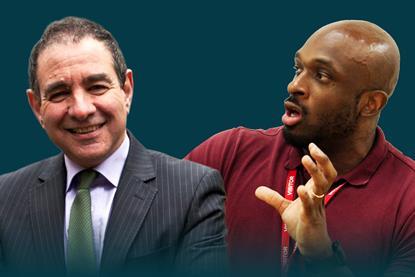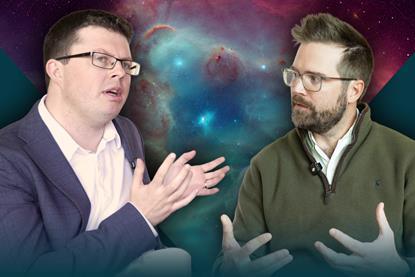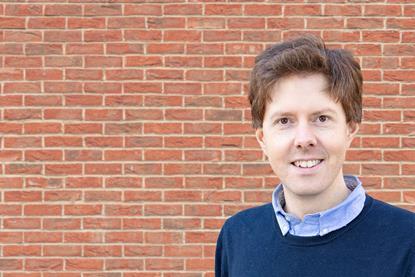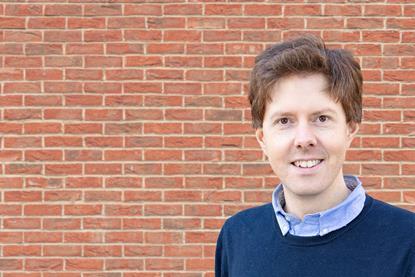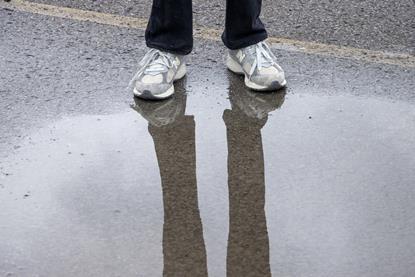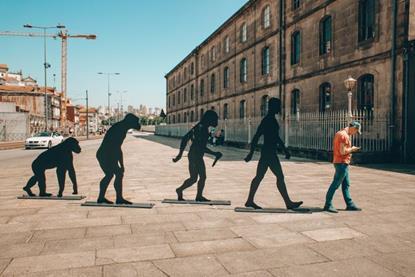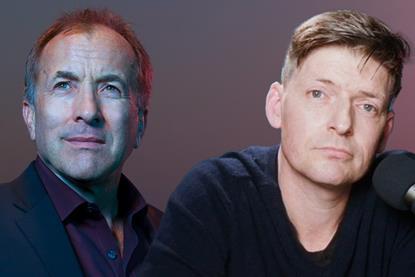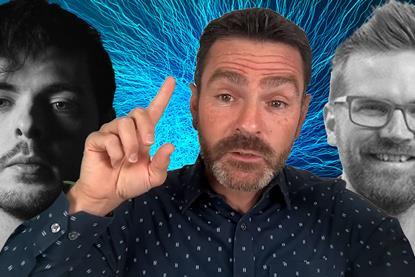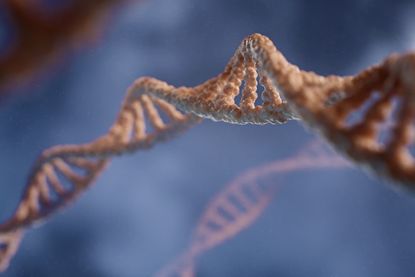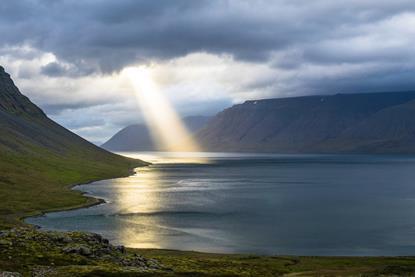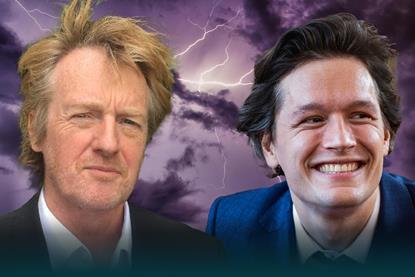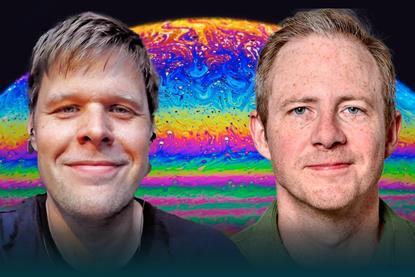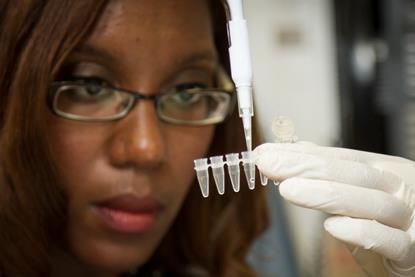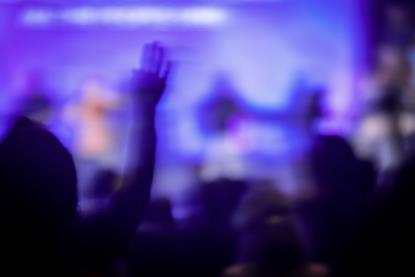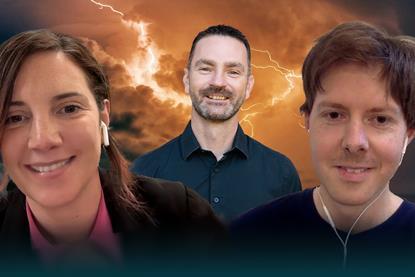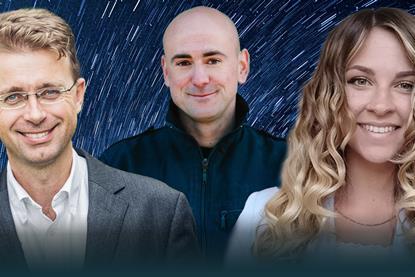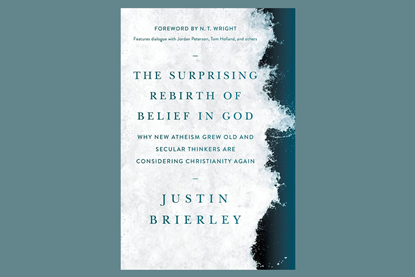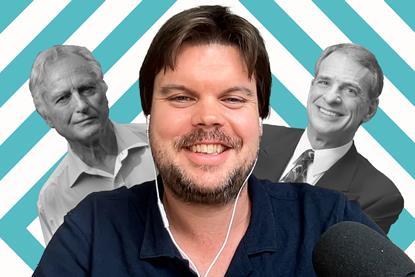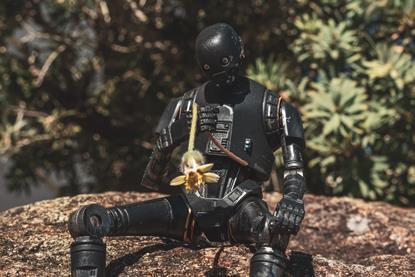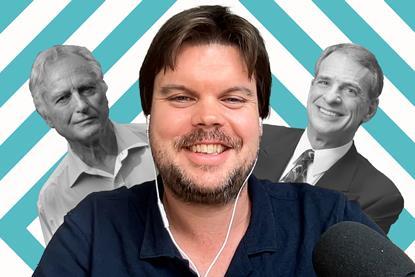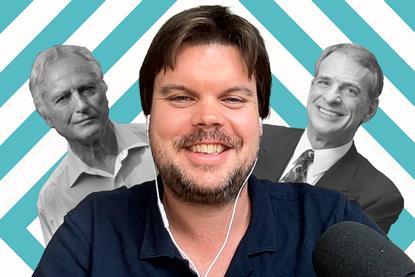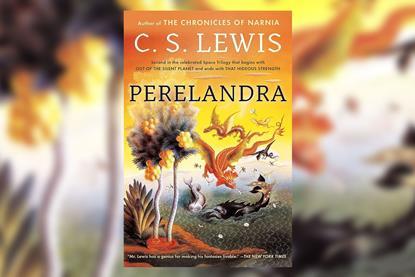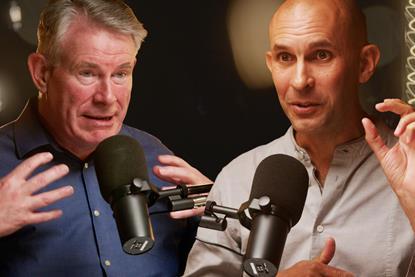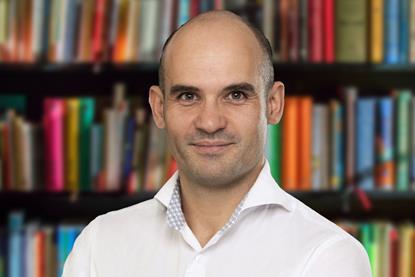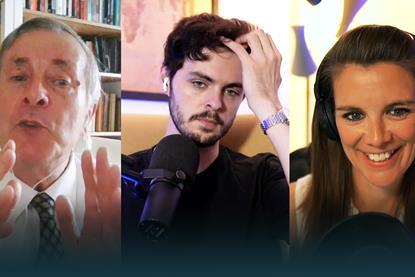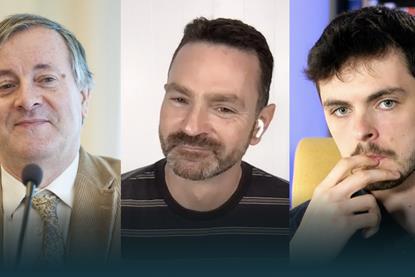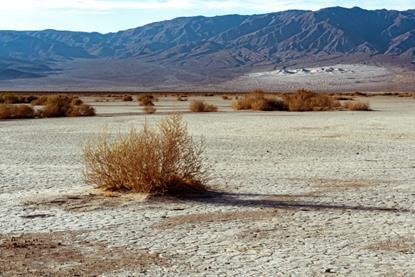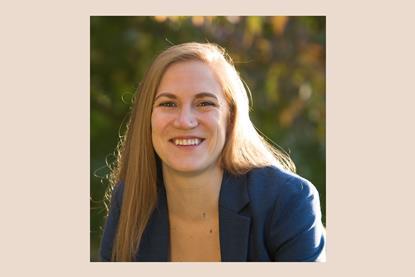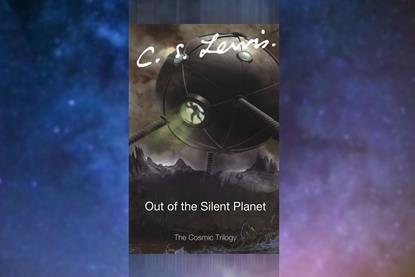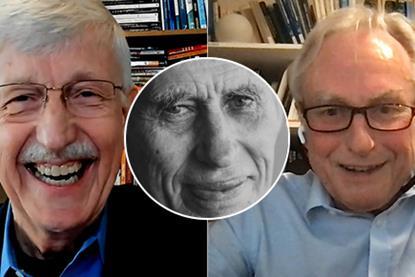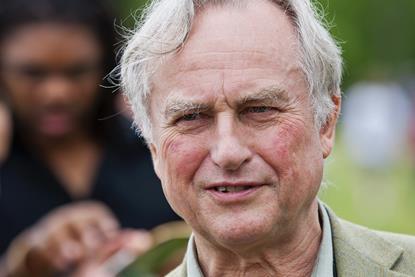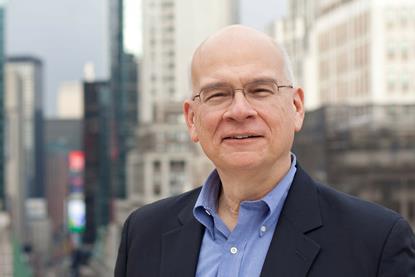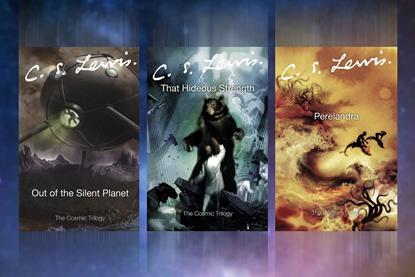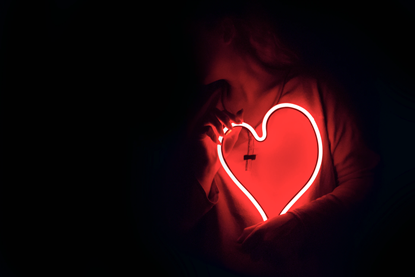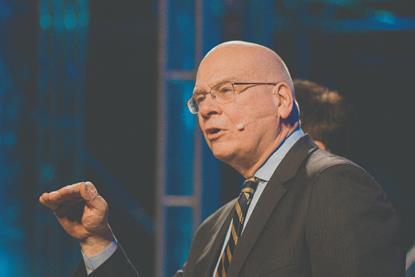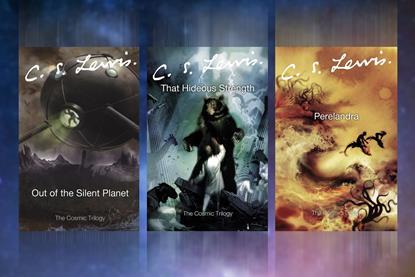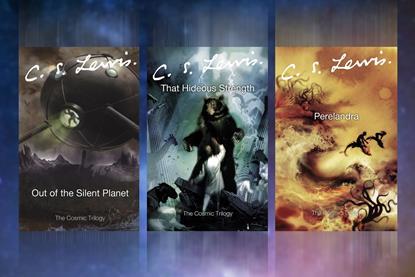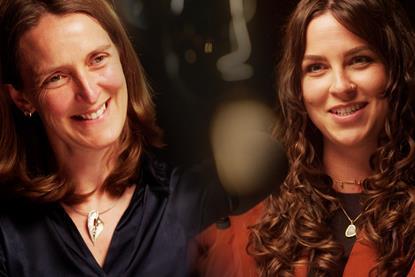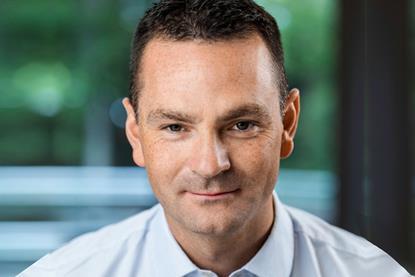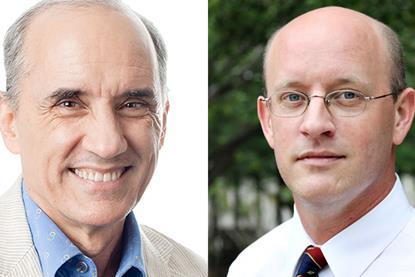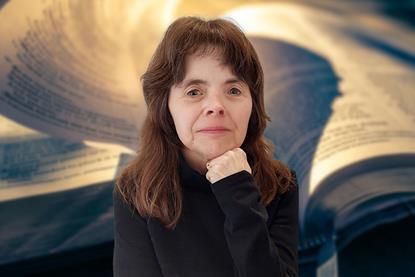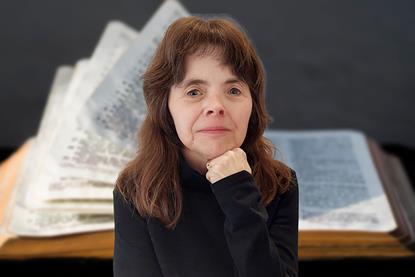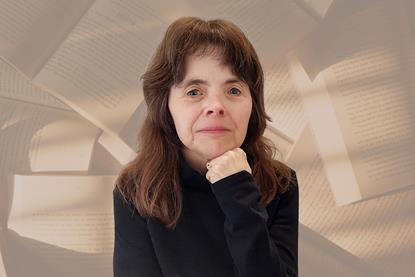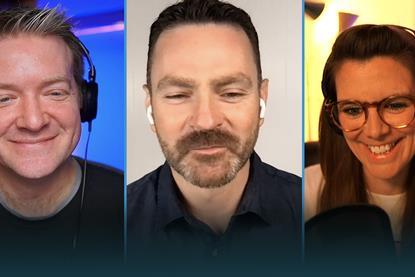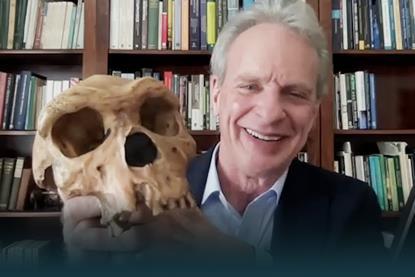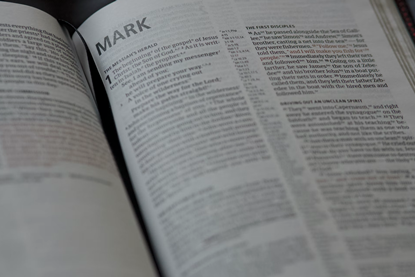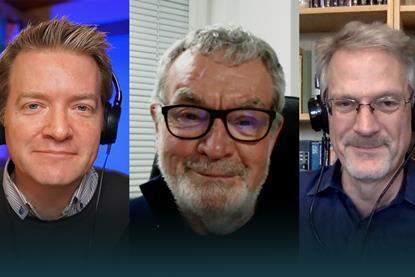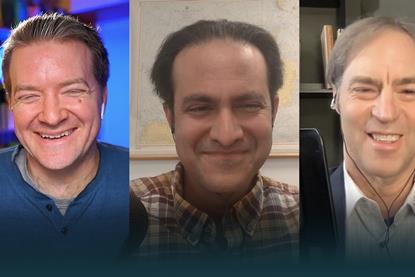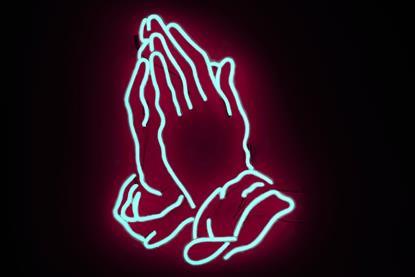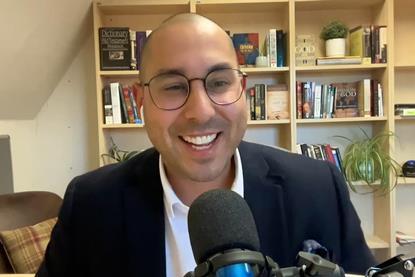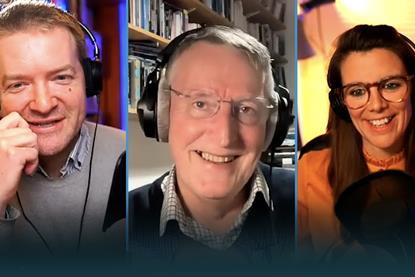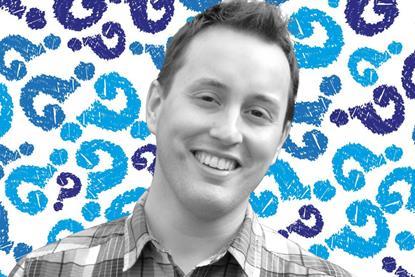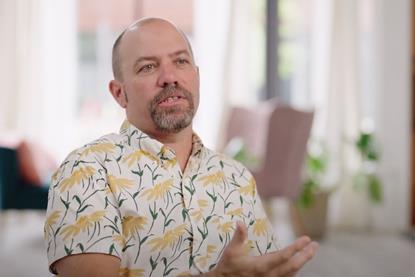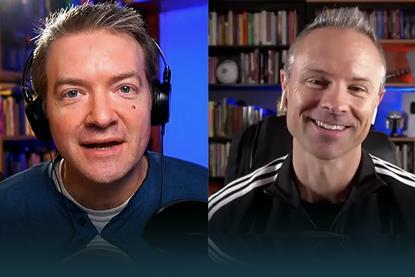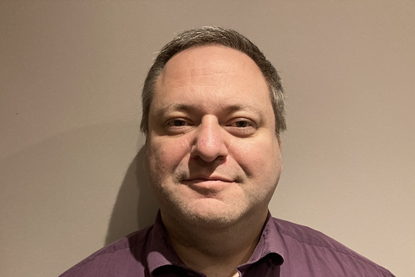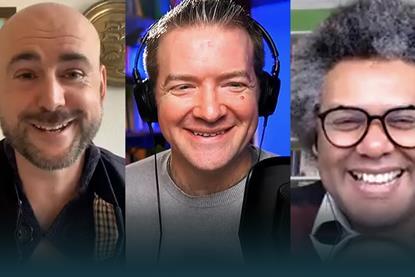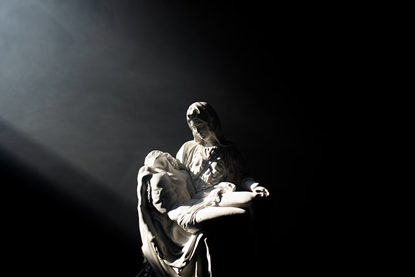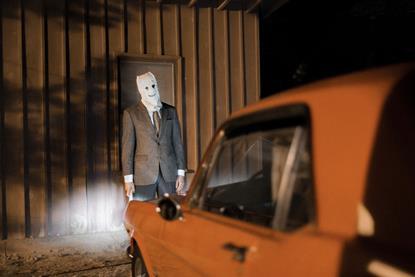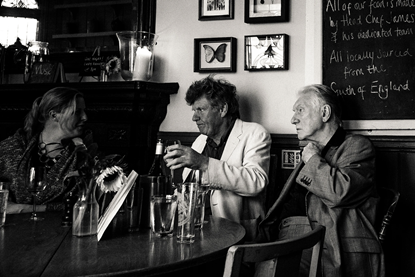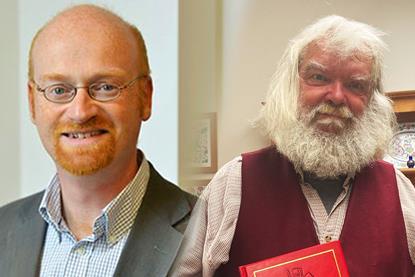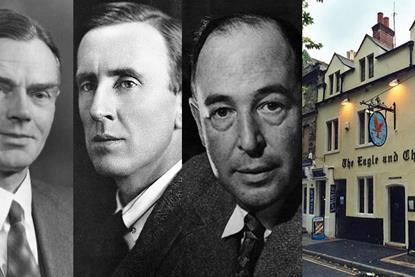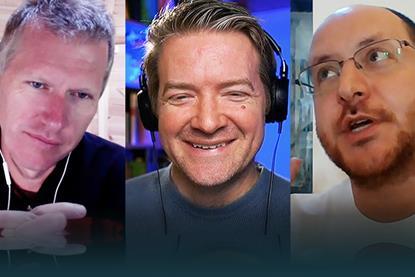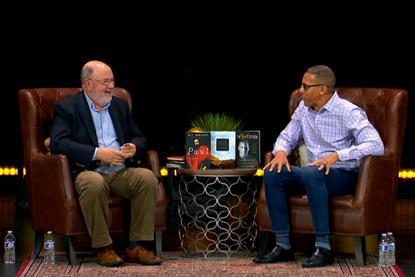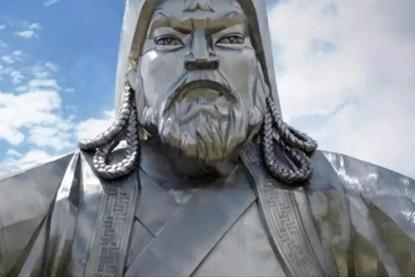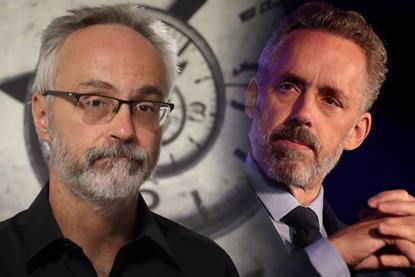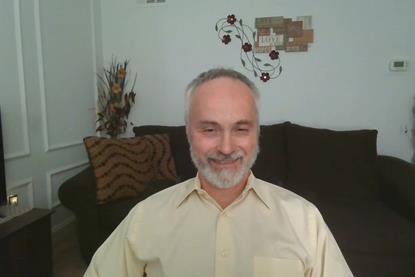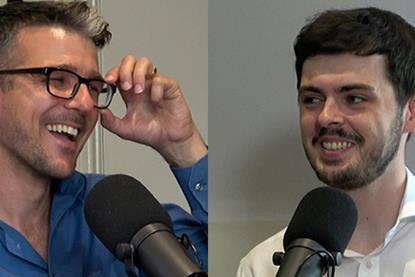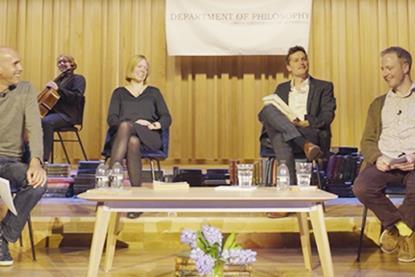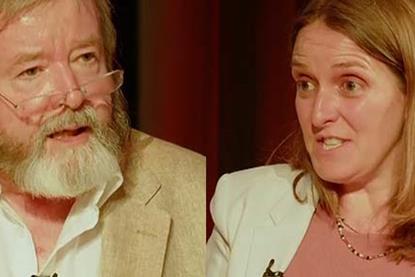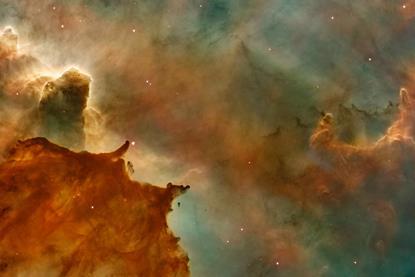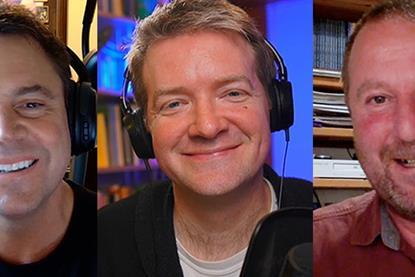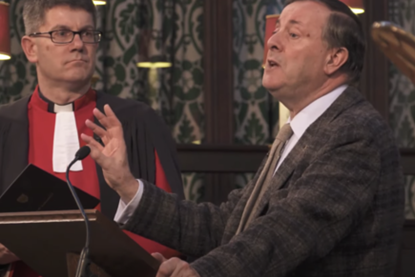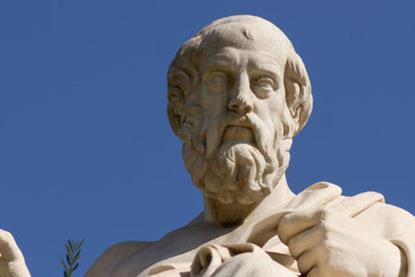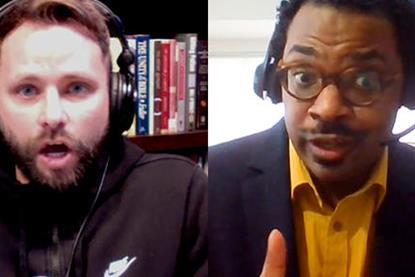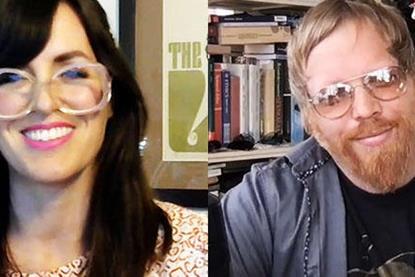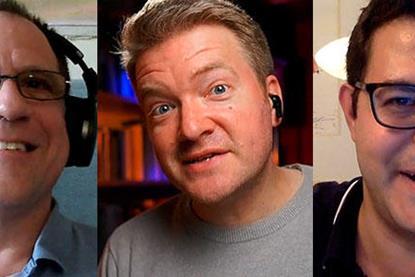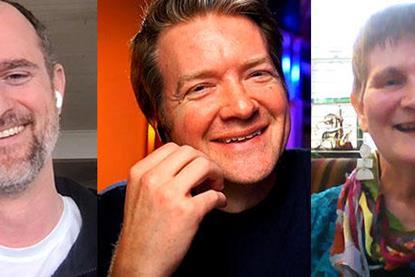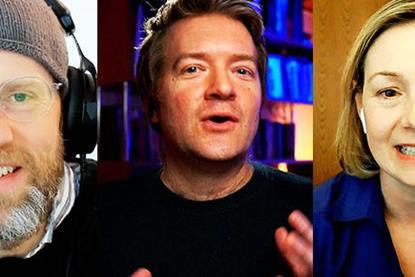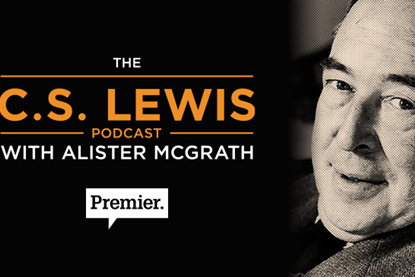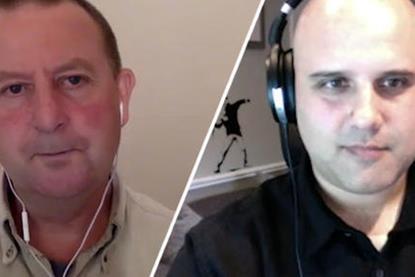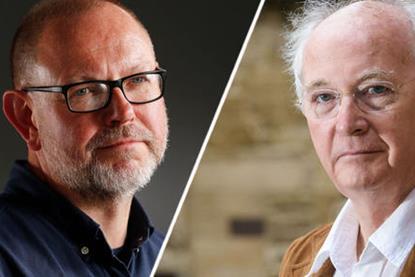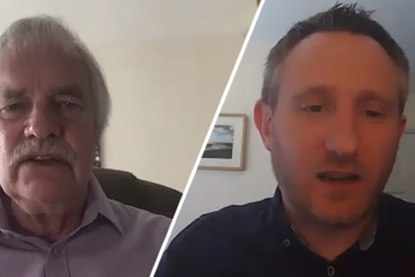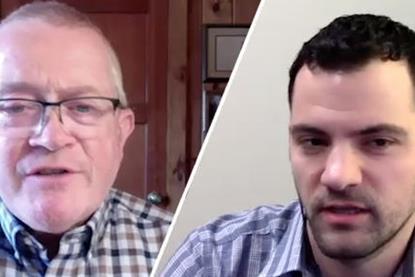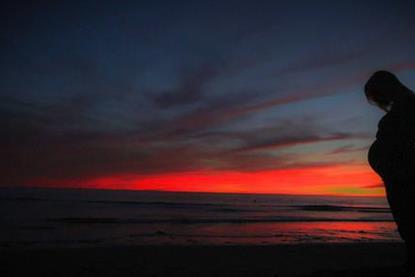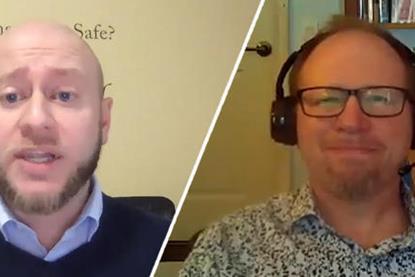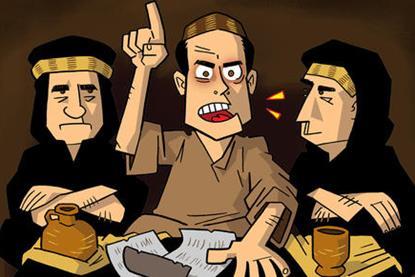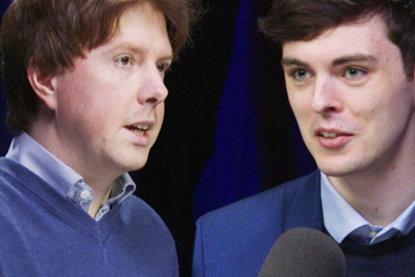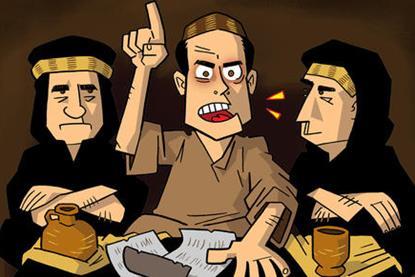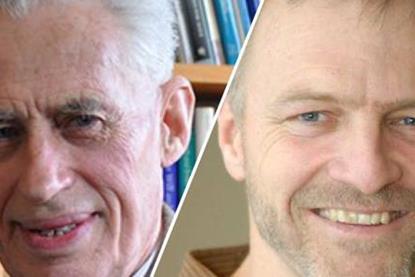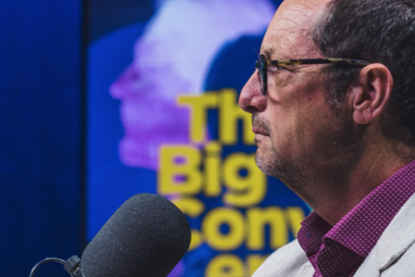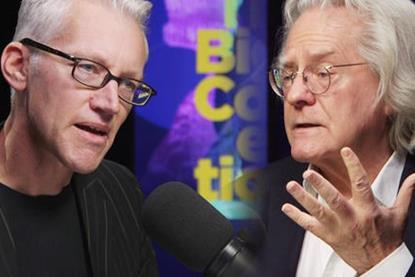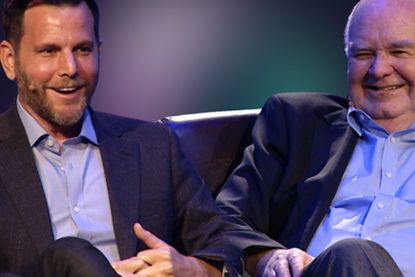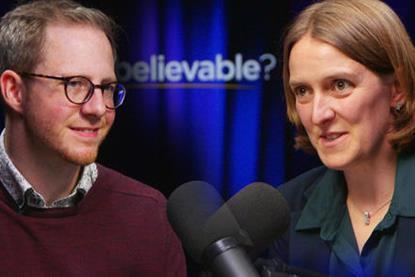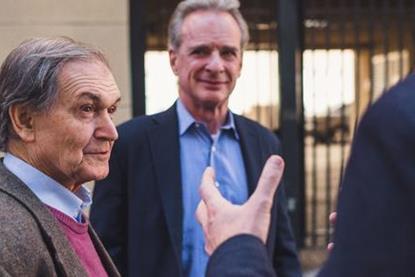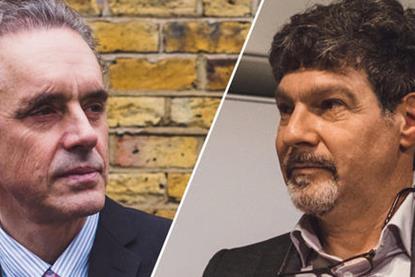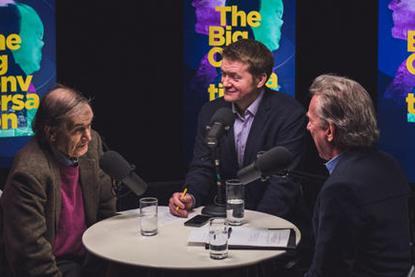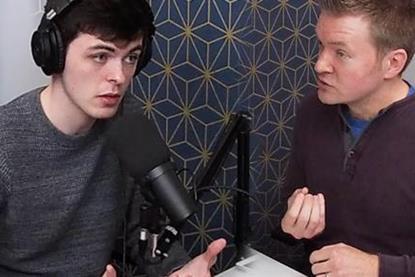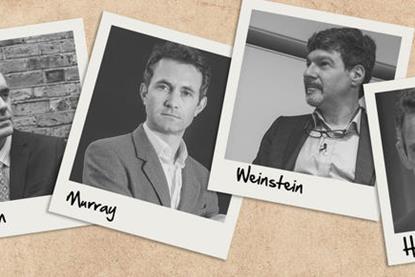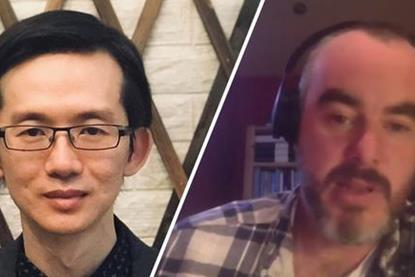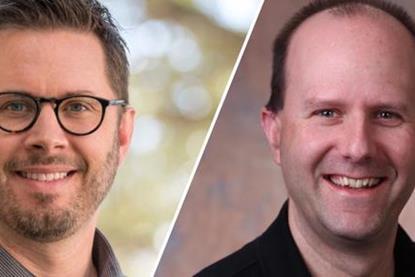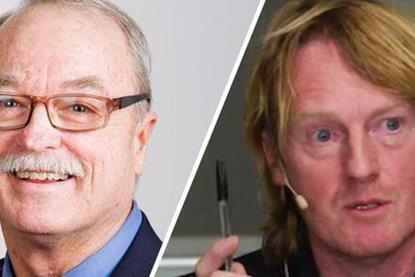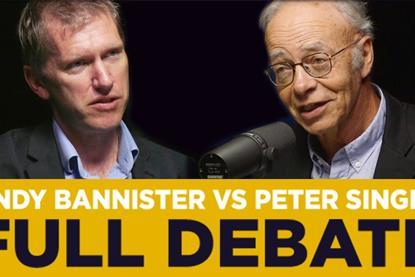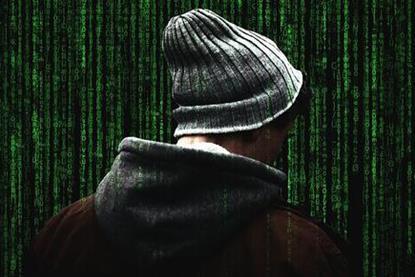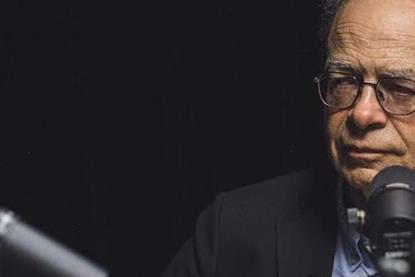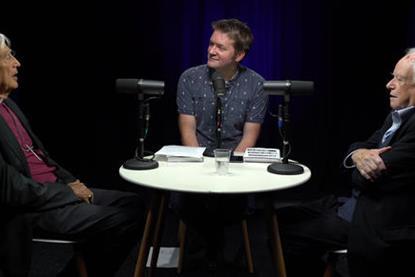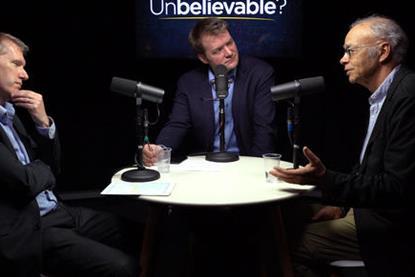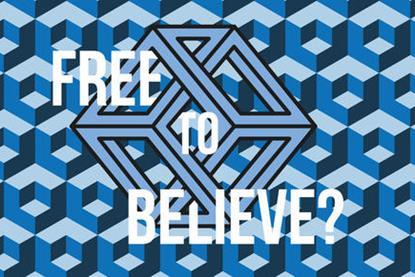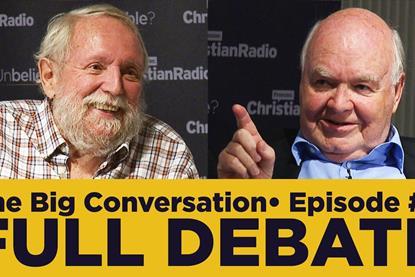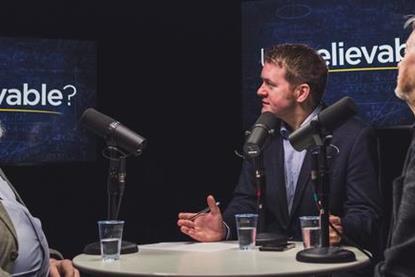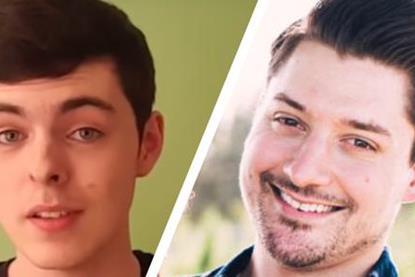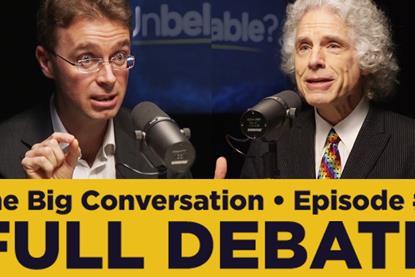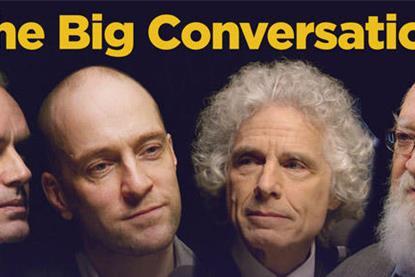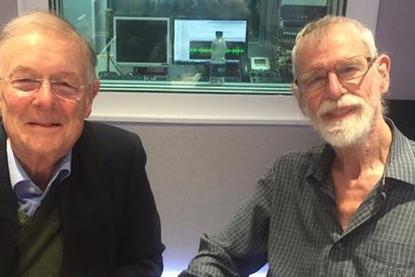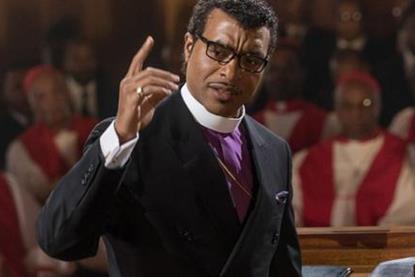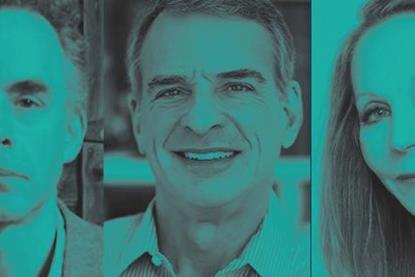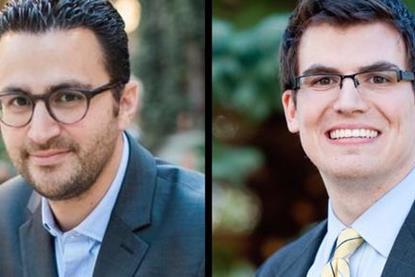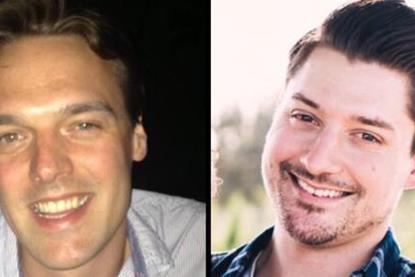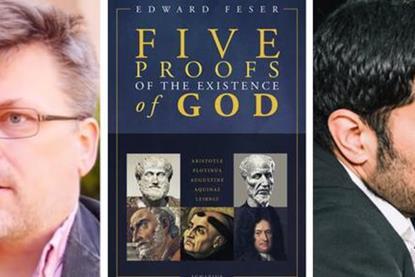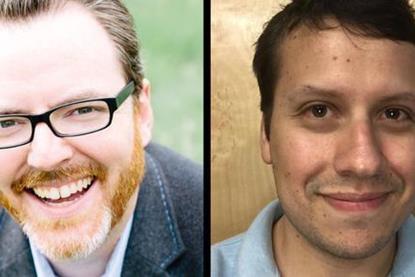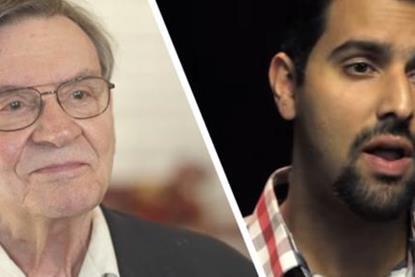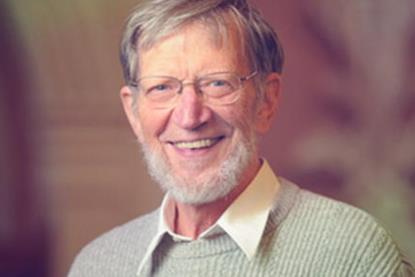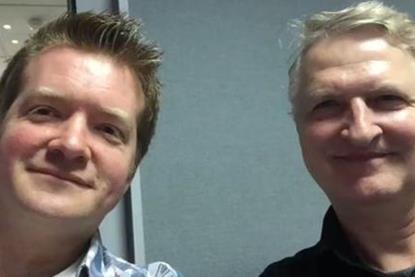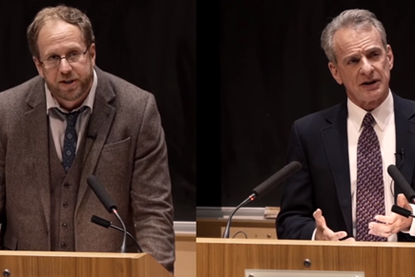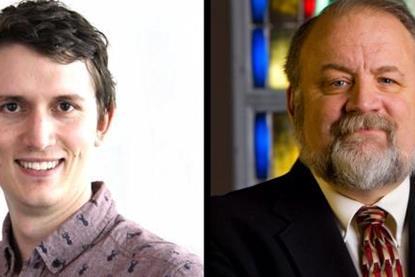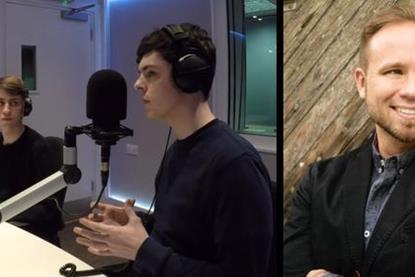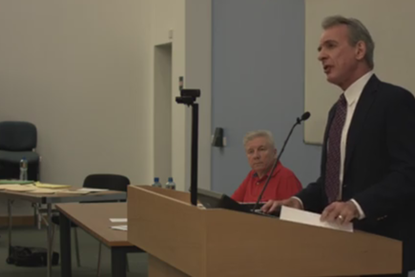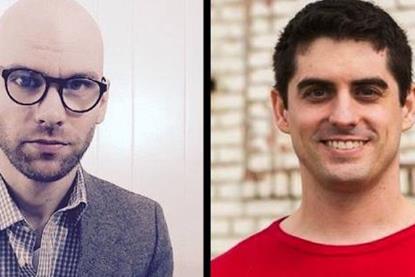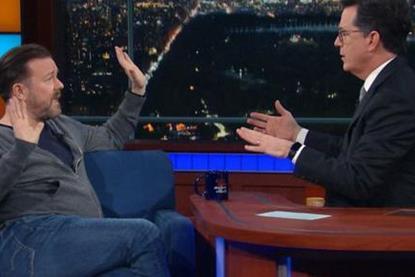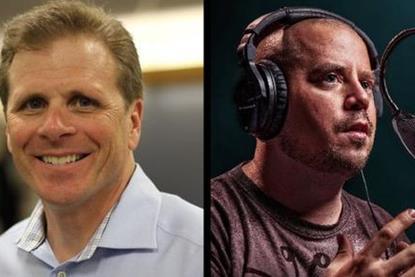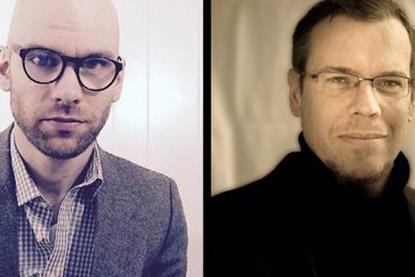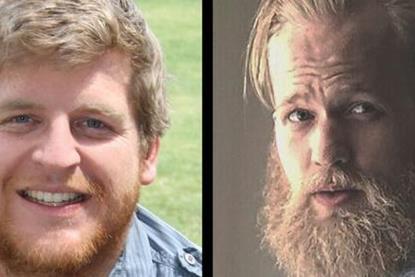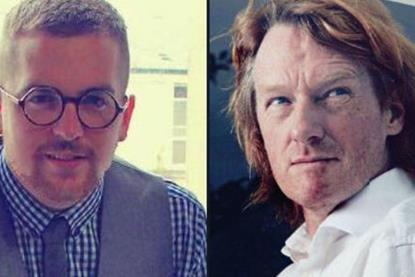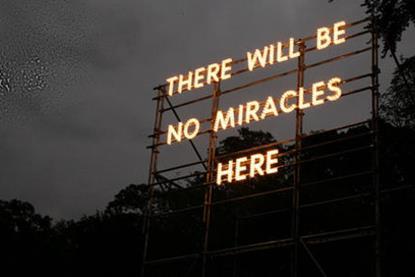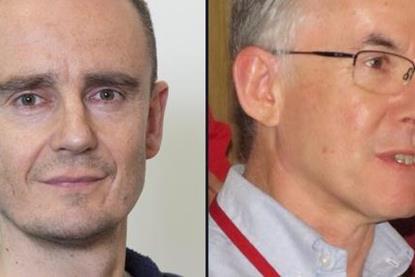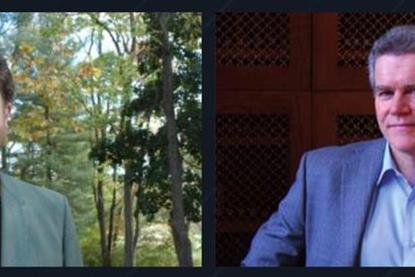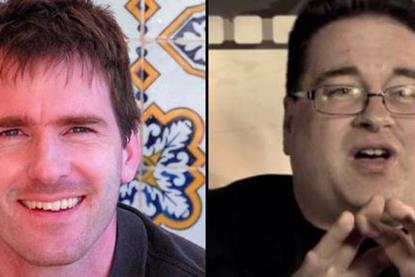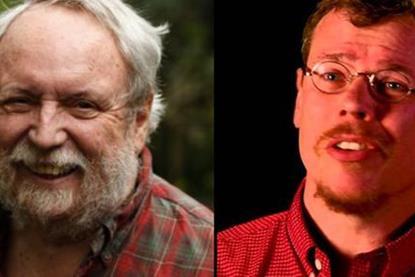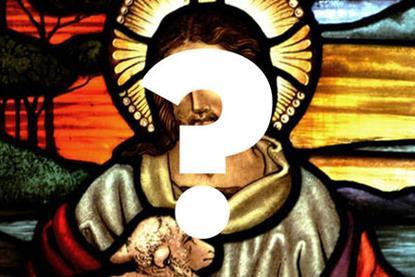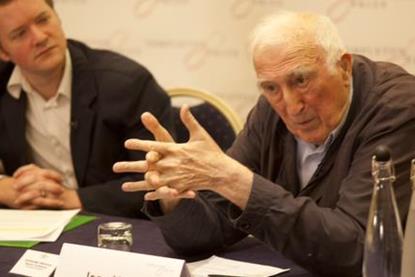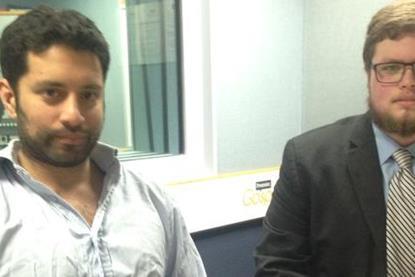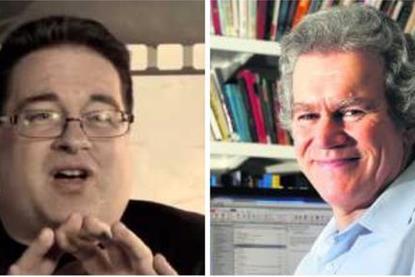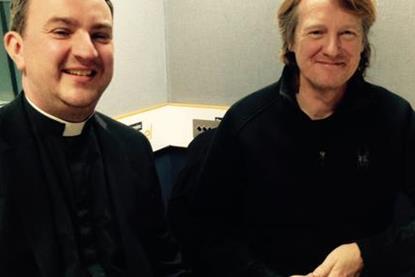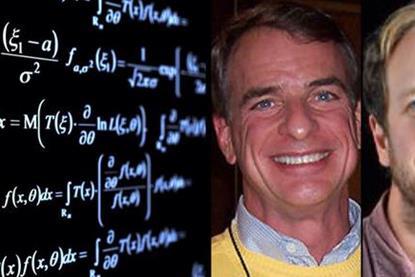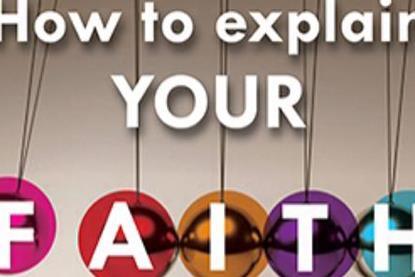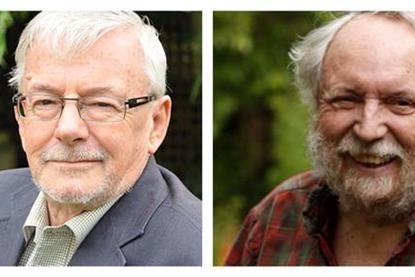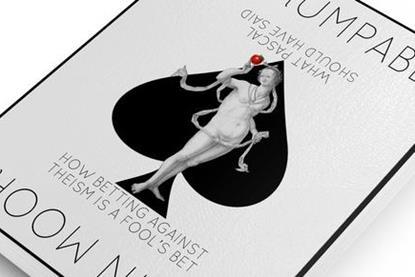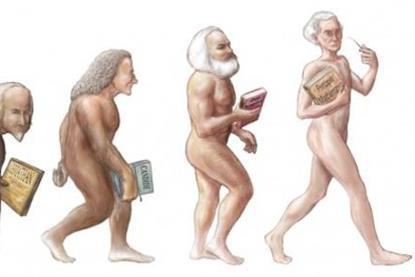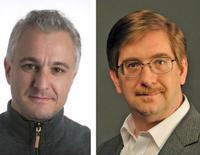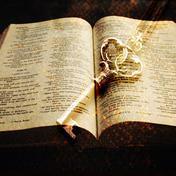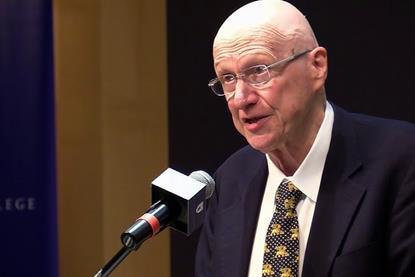Philosophy
The Sanity Of Belief - Can God Explain Everything? Joshua Sijuwade vs Julius Weinberg hosted by Andy Kind
Is belief in God rational, or is it something no reasonable person should accept?
Beyond Naturalism: What’s Real? Dr. Alex Carter vs Dr. Zachary Ardern - Hosted by Sam McKee
What is really real? In this wide-ranging conversation, Dr Zachary Ardern (evolutionary biologist, Wellcome Sanger Institute), Dr Alex Carter (philosopher, University of Cambridge), and Dr Sam McKee (science historian, Manchester Metropolitan University) sit down to revisit one of the oldest debates in human thought — the relationship between science, religion, and ultimate reality.
The CS Lewis Podcast #220 Dr. Max Baker-Hytch: The Moral Argument for God’s Existence
Today we are joined by Dr. Max Baker-Hytch, a tutorial fellow in Philosophy at Oxford University, to discuss Lewis and the moral argument for God’s existence. What did Lewis mean by a universal moral law, and why did he think it pointed to something beyond nature?
The CS Lewis Podcast #219 Dr. Max Baker-Hytch: Was C.S Lewis a philosopher?
Today we are joined by Dr. Max Baker-Hytch, a tutorial fellow in Philosophy at Oxford University, to discuss Lewis and philosophy. Did C.S. Lewis consider himself a philosopher, and should we?
Does life have a purpose? Answers to the seven most googled questions about God
From CS Lewis to everyday heroes, Premier Unbelievable explores where true meaning and purpose are found. Pastor Bruce Miller and others reflect on the surprising lessons of Ecclesiastes, challenging us to look beyond life “under the sun” for deeper significance.
When the Stones Cry Out - Intelligent Design and the Voice of Creation
Part 2 of a four-part series: From Theistic Evolution to Intelligent Design: Why I changed my mind
Wrestling with the Divide - Why I Couldn’t Keep Faith and Science Apart Anymore
Part 1 of a four-part series: From Theistic Evolution to Intelligent Design: Why I changed my mind
A God that Cannot Not Exist? The Ontological Argument
Author Joel Furches explores one of the least understood and most overlooked rational arguments for God, and addresses its objections
The deceptive simplicity of William Lane Craig’s Kalam Cosmological Argument
Philosophical reflection on infinity leads to inevitable conclusions about the nature of reality and the existence of a powerful personal creator
The Great Morality Debate: Secularism vs. Christianity with Dr Michael Shermer and Rev. Glen Scrivener
This week on Premier Unbelievable?, we tackle one of the most fundamental questions in philosophy:
Christian Philosopher Vince Vitale Stunned by Free Will Showdown: Alex O’Connor vs. Alex Carter
Recently on Unbelievable you may have seen Ruth Jackson host an energised debate about free will between Alex O’Connor – host of the Within Reason podcast and the highly popular YouTube channel, Cosmic Skeptic – and Dr. Alex Carter – who is the Academic Director for Philosophy and Interdisciplinary Studies at the University of Cambridge, Institute of Continuing Education.
Does DNA’s language point to a creator?
The complexity and communicative qualities of our genetic building blocks are not easily explained by science, but instead point to intelligent design, argues Joel Furches
How the Universe Points to God: a summary of two cosmological arguments
Apologist Clinton Wilcox explores two fascinating rational justifications for believing in God that use the science and philosophy of the Universe
There’s a brand new argument for the existence of God: here’s a simple(ish!) explanation of the ‘problem of psychophysical harmony’.
Theism has been a hot topic in philosophy in recent years, and many academics now say there are very good arguments for the existence of God on the table.
Is belief in an evil God more plausible than belief in a good God? Stephen Law vs Jack Symes hosted by Vince Vitale
Did you hear the one about the three philosophers? Yes, on Unbelievable? 👀 🧠 🎙️In this episode, Oxford philosopher Stephen Law, the main proponent of the Evil God Challenge, argues that the evidential problem of evil challenges the belief in a good God. ⚡️
Unbelievable? Psycho-Physical Harmony: can natural selection alone explain experiential rationality? Philip Goff v Dustin Crummett hosted by Andy Kind
Why do we tend to go for an experience that feels good and when something feels bad, we tend to avoid it? Why are conscious experiences and behaviour paired together in the most rational way? The Unbelievable podcast unpacks the mystery of psycho-physical harmony with Philip Goff, Professor Philosophy at Durham University (an atheist) as he debates Dustin Crummett, a Christian philosopher.
Matters of Life & Death: How much is too much to genetically screen your children?
In the first half of this episode we explore new research into public opinion around polygenic embryo screening. This technology allows people undergoing IVF to see what genes each potential embryo has and then choose to reimplant the one with the ‘best’ genetic make-up.
For better or worse: How has Christianity impacted the intellectual heritage of the West?
Apologist Joel Furches explores Christian history and its impact today
Unbelievable? Is there as much reason to believe in an evil God as a good God? Max Baker-Hytch vs Asha Lancaster-Thomas hosted by Vince Vitale
In the discussion on the plausibility of an all-evil God versus an all-good God, Dr. Max Baker-Hytch delivered a compelling argument that encapsulated the essence of the debate. He highlighted the inherent scepticism that arises when considering the ‘evil God’ hypothesis, pointing out that if such a malevolent deity were to exist, it would provide ample reason to doubt the reliability of our cognitive faculties.
Unbelievable? Why do humans try to play God? Nick Spencer vs Emily Qureshi Hurst hosted by Andy Kind
For too long, the ‘science and religion’ debate has fixated on creation, evolution, cosmology, miracles and quantum theory, and not enough on the essence of what it means to be human. But this is a mistake argues one of our guests today, Christian academic Nick Spencer, Senior Fellow at Theos, in his new book ‘Playing God: science, religion and the future of humanity.’ Back on the show is Emily Qureshi-Hurst expert on the philosophy of time.
Is there a rebirth of belief in God?
Erik Strandness reviews Justin Brierley’s new book
Unapologetic #73 Peter Byrom: Dawkins’ argument from complexity
In the final part of their discussion, Peter Byrom delves into Dawkins’ argument from complexity, suggesting it may be a circular assumption. They unpack Dawkins’ fascinating exchange with Francis Collins in 2022, where Dawkins admits he may have a presupposition towards materialism. Plus, what does the future hold?
Is AI conscious and does it matter?
Dr Eve Poole considers whether we have to learn to be responsible for the souls we are creating now we are creating artificial intelligence and robots in our own image
Unapologetic #72 Peter Byrom: Disillusioned with Dawkins
Peter Byrom continues to share his faith journey as told in the chapter he contributed to Coming to Faith Through Dawkins. He discloses how challenging Richard Dawkins on why he wouldn’t debate William Lane Craig led to him becoming something of a YouTube sensation! Peter also shares why he believes apologetics is important and what the final nail in his atheist coffin was.
Matters of Life & Death: Q&A: Should Christians use homeopathic medicine and why are climate scientists self-censoring in academic journal articles?
A listener has emailed in to ask where we stand on alternative medicine, such as homeopathy or chiropractors. Is it fine for believers to partake in these kinds of complementary treatments and therapies, alongside traditional evidence-based scientific medicine? Why are they so stubbornly popular despite mountains of research suggesting they mostly don’t work?
Why secular sceptic Nir Eyal thinks we need Church
Theology student David MacPherson reflects on a recent episode of The Diary of a CEO, where Nir Eyal discussed the benefits of church and a worshipping community
Unapologetic #71 Peter Byrom: Discovering Dawkins
In the first episode of this three-part series, Peter Byrom shares his fascinating story as told in the chapter he contributed to Coming to Faith Through Dawkins. He outlines how he encountered the apologist William Lane Craig via the New Atheists and discusses his growing disillusionment with Dawkins’ “devastating” argument from complexity.
The CS Lewis Podcast #124 Perelandra: Scientism, spirituality and magic
Professor Alister McGrath explores the second book of CS Lewis’ space trilogy, Perelandra, looking at some of its key themes, characters and questions. Could the Fall have been prevented? What if it hadn’t happened? How did Lewis perceive magic? Where do we find meaning? Is there a limit to science?
Unbelievable? The Robot Race - Part 2: How should humanity flourish in an AI world? - Nigel Crook & Anil Seth
The Big Conversation - Episode 6 | Season 5
Unapologetic #70 Phil Knox: Dealing with objections
Why do many people deem religion irrelevant? What are some of the biggest objections to belief in God? Why are droves of young people leaving the Church? Evangelist Phil Knox shares some of his thoughts about these big topics and gives some tips on how to share your faith effectively.
Unbelievable? Coming to faith through Dawkins - Part 2: Is there a new New Atheism? Alister McGrath & Alex O’Connor
In the second part of their discussion based on the book Coming to Faith Through Dawkins, theologian Alister McGrath and YouTuber Alex O’Connor discuss where we may be heading in regards to religion and atheism.
Unbelievable? Coming to faith through Dawkins - Part 1: has New Atheism failed? - Alister McGrath & Alex O’Connor
Unbelievable? delves back into history and asks Did new atheism fail? with one the world’s best-known theologians Alister McGrath debating Oxford-educated philosopher and wildly successful YouTuber Alex O’Connor.
Do near death experiences contradict Christian belief and doctrine?
Journalist Heather Tomlinson explores near death experiences and theology in light of a recent Big Conversation on this topic
From radical atheist to Christian via rigorous intellectual study
Former atheist, Dr Stefani Ruper, was intellectually convinced of secular atheism, but found that it lacked substantive answers for her life. More than 13 years of scholarly pursuit of truth led her to choose belief in God. Jana Harmon shares her story
The CS Lewis Podcast #120 Out of the Silent Planet: Weston, Devine and JRR Tolkien
As we delve into the first book of the trilogy, Out of the Silent Planet, Professor Alister McGrath looks at some of its key themes. He explores the characters of Weston and Devine, looking at whether they represent particular ideologies and how Lewis exposes issues with their worldviews. Plus, why was JRR Tolkien such a fan of the book?
Unbelievable? Richard Dawkins & Francis Collins Debate (Replay) + Clash with Richard Swinburne + New Big Conversation Episodes Reveal!
We revisit a riveting dialogue from Season 4 of The Big Conversation, from 2022.
It is time to move on from Richard Dawkins
Following a recent Unbelievable? featuring Richard Dawkins, author Dr Peter Harris shares his thoughts about the infamous atheist
Remembering Tim Keller: Death has lost its sting
Entrepreneur Max Anderson shares his final reflections on the great Tim Keller who influenced his life in a deeply profound way
The CS Lewis Podcast #118 Evil, evolution and theological reflection in The Space Trilogy
Alister McGrath explores some of the theological themes within Lewis’ trilogy, such as incarnation, atonement and the problem of evil. How did Lewis view the relationship between science and religion? What did he think about evolution? How did he critique certain worldviews through his fiction?
Remembering Tim Keller: How our daily work has an eternal value
Entrepreneur Max Anderson reflects on his New York pastor and friend’s teaching on work
Remembering Tim Keller: The purpose of marriage
Entrepreneur Max Anderson reflects on his New York pastor and friend’s teaching on marriage
Remembering Tim Keller: The heart is an idol factory
Entrepreneur Max Anderson reflects on his New York pastor and friend’s teaching on idolatry
Remembering Tim Keller: Jesus’ teachings only matter if the resurrection is real
Entrepreneur Max Anderson reflects on his New York pastor and friend’s apologetic teaching
Remembering Tim Keller: Religious people may be just as lost as the irreligious (maybe more)
Entrepreneur Max Anderson reflects on his New York pastor and friend’s teaching on the Prodigal Son
Remembering Tim Keller
Entrepreneur Max Anderson reflects on the many things he’s learnt from his New York pastor and friend
Unapologetic #64 Ana Ávila: Has science disproved religion?
Ruth Jackson continues her conversation with Mexican writer Ana Ávila who studied clinical biochemistry. Why is there a perceived conflict between science and religion? Does science contradict the Bible? Can you prove there is a God?
The CS Lewis Podcast #117 Vivisection, mental health, racism and sexism
We dive into some of the important issues explored in Lewis’ Space Trilogy. Why was he so vehemently opposed to animal experimentation? What would Lewis say to those experiencing mental health struggles today? Plus, Alister McGrath responds to the accusation that CS Lewis was sexist and racist.
Are we more than just our brains?
Following a recent Big Conversation, Dr Erik Strandness explores the relationship between the brain and mind, near death experiences, the existence of the soul and the perceived conflict between religion and science
Sex, drugs and rock ‘n’ roll: Why CS Lewis’ Space Trilogy is still relevant
The CS Lewis podcast recently launched a new series focussing on one of Lewis’ lesser known works of fiction, his Space Trilogy. Here, Ruth Jackson shares why she and Professor Alister McGrath think the books are worth a read, despite their length and difficulty
Unbelievable? Sharon Dirckx vs Emily Qureshi-Hurst • Do consciousness and near-death experiences point to an afterlife?
The Big Conversation - Episode 4 | Season 5
Ask NT Wright Anything #176 Free will and Problem of Evil (Classic)
From Sept 2019: An atheist listener asks a question about free will and the problem of evil. Will it be possible for there to be another ‘fall’ in the new creation? And the hosts of the Libertarian Christian Podcast have some questions for Tom about living as Christians in today’s world.
Christians in science: Are there limits to scientific explanations?
Joel Furches recently spoke to Dr Jim Stump, a philosopher of science who works alongside Dr Francis Collins, about his work in the field of scientific philosophy and his belief in God
Unapologetic #59 Vince Vitale: From scepticism to Christian apologist
Ruth Jackson speaks to Dr Vince Vitale, one of the new guest hosts of Premier Unbelievable?, about his journey from scepticism to Christianity while studying philosophy at Princeton University.
The CS Lewis Podcast #111 Is Lewis’ argument from reason convincing?
In the second part of this replay of an Unbelievable show, originally broadcast in October 2010, Justin Brierley speaks to Lewis scholar Dr Michael Ward and former Christian-turned atheist Dan Barker. Here, they continue to discuss CS Lewis’ apologetics, focussing particularly on his argument from reason in ‘Miracles’.
Is atheism just a ‘lack of belief’ in God?
Apologist Joel Furches explores various definitions of “atheism” and the consequent impact of these
Does Big Bang cosmology point to a creator?
Writer Steve Schramm investigates the Big Bang theory and explores its implications
Unapologetic #51 Lydia McGrew: Who is the true Jesus?
In the final part of her discussion with Ruth Jackson, Dr Lydia McGrew, an analytic philosopher and author of Testimonies to the Truth: Why you can Trust the Gospels, unpacks some of the more disconcerting elements of Jesus’ character and looks at how this impacts the veracity of the Gospel accounts. She also addresses how the loneliness and suffering of Jesus can speak to a hurting world.
Unapologetic #50 Lydia McGrew: Can we trust the Gospels?
Dr Lydia McGrew, an analytic philosopher and author of Testimonies to the Truth: Why you can Trust the Gospels, explores how reliability is assessed in regards to ancient documents. She tackles some of the alleged contradictions in the Gospels and looks at why certain elements, such as accurate geography, cultural knowledge and names are important.
Unapologetic #49 Lydia McGrew: Is an evidential approach to Christianity feasible?
Dr Lydia McGrew, an analytic philosopher and author, became a Christian at the age of 4. She shares some of her story with Ruth Jackson, including her experience of being adopted, her prevailing wrestle with the problem of evil and why she’s passionate about an evidential approach to Christianity.
Unbelievable? Celebrating 17 years - Justin Brierley, Ruth Jackson, and Vince Vitale
The Unbelievable? show has been broadcasting for over 17 years. Justin Brierley and Ruth Jackson take a retrospective tour through highlights from the show from day one to some of the most significant debates that have been hosted, before being joined by Dr. Vince Vitale for a special announcement by Justin.
Unbelievable? Ask William Lane Craig Anything
Renowned Christian thinker William Lane Craig answers listener questions on a live edition of the show. He responds to questions on philosophy, Adam & Eve, suffering, the worst argument for God and more. Plus we hear from Jeremiah J Johnston on the 7 best reasons to believe in the resurrection.
Can the Gospels be trusted? The presence of casual coincidence
Gospel, Bible, reliability, manuscript, eye witness, testimony, coincidences, story, made up,Philosopher and author of Testimonies to the Truth: Why You Can Trust the Gospels, Lydia McGrew, looks at some key elements that point to the genuineness of eye witness testimony within the Gospel narratives
Unbelievable? Optimism or extinction? What’s the future of humanity? John Hands & Perry Marshall
Secular scientist and academic John Hands has been described as a ‘polymath’. His 2016 book Cosmosapiens received wide praise for its analysis of human evolution since the beginning of the universe. His new book ‘The Future of Humankind’ looks ahead to what lies in store for homosapiens.
Unbelievable? Where does order in nature and the cosmos come from? Stephen Meyer & Saleem Ali
Prof Saleem Ali of the University of Delaware is author of ‘Earthly Order: How natural laws define human life’ and describes the way order in the universe drives order in human and social settings. He engages with Dr Stephen Meyer of the Discovery Institute, whose book ‘The Return of The God Hypothesis’ makes the case that order in nature points to a divine mind.
Ask NT Wright Anything #159 What difference does prayer make? Tom shares his prayer habits
Tom answers listener questions on prayer including: ‘Is prayer just telling God what to do?’ and ‘What difference does prayer make if God has already decided what to do?’. Kelly is nervous about praying out loud before a meal in public, and Jennifer is questioning the legitimacy of public displays of prayer in the USA. Tom responds to these questions and shares his own habits of prayer, including keeping a prayer diary.
Why are we so obsessed with sex? LGBT, materialism and the revival of Epicureanism
Following the recent LGBT and the Church Unbelievable? show, author Mark Roques explores how Greek philosophy helps illuminate our understanding of sex
Protestant, Catholic and Orthodox: What’s the difference and does it matter?
Protestant Christian and apologist Nick Peters explores some key distinctions within different branches of Christianity
The CS Lewis Podcast #92 Alister McGrath: The making of a Mere Christian
In the sixth episode of our series focussing on McGrath’s book CS Lewis: A Life, we explore Lewis’ faith journey, looking at how and why he became a Christian. We also hear about the significant impact of JRR Tolkien. Plus, don’t forget to register to win a copy of McGrath’s seminal biography of Lewis.
Unapologetic #37 Alanzo Paul: a former opiate addict on how to reach young people
Originally from Canada, Alanzo Paul fell into a life of addiction after his parents’ divorce. Here, he shares some of his story with Ruth Jackson, including his reflections on working with Ravi Zacharias. He also looks at some of life’s big questions and suggests ways to reach the apathetic with the gospel.
Unbelievable? ChatGPT, AI and the future - John Wyatt Q&A on living faithfully in a technologically confusing world
Justin and Ruth were joined by research scientist Dr John Wyatt on a live show to talk about AI, robotics and technology. Listeners asked questions about machine consciousness, the potential dangers of AI and how to raise children in a tech world.
The Moral Argument - does God explain moral facts better than atheism?
Apologist Clinton Wilcox shares two iterations of the moral argument, which he believes help point us to the existence of God
Unapologetic #36 Trevin Wax: How to tackle objections to Christianity
In the second part of their discussion, Ruth Jackson speaks to Trevin Wax, author of award-winning book ‘The Thrill of Orthodoxy’, about culture wars, evangelism and how to approach life’s big questions.
Matters of Life & Death: Martin Rees 3: Pre-emptive science fiction, the morality-reality gap, adventurers on Mars, and the mind of the Creator
In the third and final installment of John’s discussion with Lord Martin Rees, the Astronomer Royal, they discuss Martin’s views on the future of space travel and astronauts, and whether some robotic future progeny of humankind will eventually replace us in exploring the universe.
Matters of Life & Death: Martin Rees 2: Blurred humanity, re-dignifying care work, algorithms reading lung X-rays and the risks of virtual life
Happy New Year! Today’s episode continues the Big Conversation between John and Martin Rees, the astronomer royal.
Unbelievable? James KA Smith speaks on how to inhabit time & Trevin Wax shows Justin around CS Lewis’ house The Kilns
Justin presents an end of year show featuring a conversation with theologian and philosopher James KA Smith on his new book ‘How To Inhabit Time’ recorded at the Everything Conference. Justin also caught up with Trevin Wax in Oxford who gave him a tour of CS Lewis’ home The Kilns.
The Top 10 Unbelievable? shows of 2022
Justin Brierley rounds up the most popular shows of the year
Cannibalism really works for us
Author Mark Roques explores the logical outworkings of pragmatism
Unbelievable? Sean McDowell live Q&A on sexuality, transgender and culture war questions
Apologist and author Sean McDowell joined Justin along with hundreds of Unbelievable? listeners for a live show talking about Sean’s new book ‘A Rebel’s Manifesto’ and taking questions on LGBT, same-sex marriage, transgender, divorce, theology and more.
The problem of meaninglessness: an academic’s rediscovery of the Christian faith
Author Dr Peter Harris abandoned his Christian faith when he thought it wasn’t intellectually credible. He rediscovered it through a search for meaning, later uncovering its academic viability
Does hell exist?
Apologist Joel Furches explores different opinions of hell and why its existence matters
Is God hidden or have we lost our senses?
Erik Strandness explores the hiddenness of God
Unbelievable? A Christian and an Atheist walk into a bar… Andy Kind & Andy White on comedy, faith and searching for God
Stand up comedians Andy Kind (the Christian) and Andy White (the Atheist) join Justin to talk about comedy and faith and discuss Andy Kind’s new book ‘Hidden In Plain Sight: Clues you may have missed in the search for meaning’.
Matters of Life & Death: Protestant Social Teaching 1: Overlap with Catholicism, chronological snobbery, rejecting one-size-fits-all ethics, and ‘worldly’ versus ‘spiritual’ matters
Over 150 years the Catholic Church has built up a body of ethical doctrine commonly known as Catholic Social Teaching, which applies Catholic theology to wider social concerns, covering everything from labour relations to contraception.
I became a Christian through a pumpkin party
Halloween may be a controversial topic for some Christians, but it was the beginning of a journey to faith for apologist Pedro R Garcia
Halloween: scary movies, religious belief and wish fulfilment
As we approach Halloween, researcher Derek Caldwell explores Freud’s wish fulfilment hypothesis in light of our inherent fears
Apologetics: What is it and how do we use it?
It’s not about saying sorry. Joel Furches says making an intellectual defence for Christian faith has a long history
A materialist, a panpsychist and a Christian walked into a bar…
…or on to a stage. Erik Strandness explains why God continues to stand behind the question of consciousness
The CS Lewis Podcast #76 The spirituality of Owen Barfield, CS Lewis & JRR Tolkien Pt 2
The second part of a conversation between philosopher Mark Vernon and poet-theologian Malcolm Guite on the spiritual journeys of The Inklings, a group of writers and poets including Owen Barfield, CS Lewis and JRR Tolkien, who met in Oxford to discuss each other’s work. Part 2 of an Unbelievable? show first broadcast in 2019.
The CS Lewis Podcast #75 Who were the Inklings? And what did they believe? Malcolm Guite & Mark Vernon Pt 1
Mark Vernon, author of ‘A Secret History of Christianity: Jesus, the last Inkling and the evolution of consciousness’ engages with poet-theologian Malcolm Guite on the spiritual and religious influences of Owen Barfield, JRR Tolkien and CS Lewis, three key members of ‘The Inklings’. Part 1 of an Unbelievable? show first broadcast in 2019.
Unbelievable? Are religious funerals ‘empty and platitudinous’? Ian Dunt & Andy Bannister
The Queen’s state funeral was watched by billions of people and marked by deep Christian symbolism. However, during the ceremony, atheist journalist Ian Dunt tweeted that he found it “empty and platitudinous, a cardboard shield against existential despair”.
Ask NT Wright Anything #139 Q&A on New Creation & Salvation with Pastor Miles McPherson Pt 1
NT Wright was interviewed by Pastor Miles McPherson at Rock Church San Diego. They talk about Tom’s work to redescribe the gospel in terms of new creation, and what that means for the concept of ‘getting saved’. Recorded in 2019.
Expressive Individualism and Genghis Khan
Author Mark Roques explores the consequences of pushing individualism to its logical conclusion
Unapologetic #21 John Wise: The Christian atheist Pt 2 - How Jordan Peterson and Jenny led me to Jesus
Justin Brierley continues his conversation with John D Wise, known online as ‘The Christian Atheist’. John explains how the psychologist Jordan Peterson and John’s now-wife Jenny played important roles in his conversion to Christianity after 25 years as an atheist philosophy professor.
Unapologetic #20 John Wise: How a philosophy professor found God after 25 years of atheism
Dr John D Wise is known online as ‘The Christian Atheist’ and runs a podcast of the same name. He underwent a remarkable conversion to Christianity after 25 years as an atheist philosophy professor. In part 1 of his conversation with Justin Brierley he describes the journey that took him to the brink of conversion.
Can a personal conversion story be enough to persuade a skeptic?
Christian Philosopher Kenneth Pearce says that our personal religious experiences can provide testimony that is persuasive to some, but not for everybody
A most reluctant convert: Why Guillaume Bignon’s story is powerful evidence for God
Erik Strandness says that the details of Guillaume Bignon’s conversion story should give skeptic’s pause to think
When do coincidences become ‘God-incidences?’
Religious experience can count as more than just confirmation bias, says Christian philosopher Max Baker-Hytch.
Unbelievable? The Mystery of Consciousness - Panpsycast event with Rowan Williams, Anil Seth, Laura Gow, Philip Goff & Jack Symes
We’ve teamed up with the Panpsycast podcast to bring you this week’s episode of Unbelievable? ‘The Mystery of Consciousness’ was a live audience event recorded at the Tung Auditorium in Liverpool. The panellists are Rowan Williams, Anil Seth, Laura Gow and Philip Goff, moderated by Panpsycast host Jack Symes.
Did We Hear Richard Dawkins’ Swansong to New Atheism?
Peter Byrom thinks Richard Dawkins made some of his most revealing remarks during his recent discussion with Francis Collins on The Big Conversation, owing mostly to the good-natured relationship between the two guests, which allowed Dawkins to lower some of his usual defences.
Iain McGilchrist & Sharon Dirckx • Brain science, consciousness & God: Is there a master behind our mind?
What does the science of brain chemistry and consciousness tell us about the nature of our mind and our cosmos?
Why Dawkins & Collins need God for our “hole-in-one” universe
Philosopher Peter S Williams thinks both Richard Dawkins and Francis Collins overlooked a design inference, within the realm of evolutionary biology, which would go hand-in-hand with the argument from “fine-tuning” (which Dawkins himself described as “a good argument” for God during their debate).
Unbelievable? Cultivating virtue - A christian and atheist perspective. Dominic Done and Julian Baggini
Dominic Done is the author of the book ‘Your Longing Has A Name’ in which he explores the seven virtues listed in 2 Peter 1:5-7 - Goodness, knowledge, self-control, perseverance, Godliness, mutual affection and love.
The CS Lewis Podcast #33 CS Lewis Symposium Pt 1 - Alister McGrath on Rational Argument
To mark the 50th Anniverary of CS Lewis’ death in 2013, Westminster Abbey hosted the CS Lewis Symposium. In this first lecture Alister McGrath gave a talk titled “Telling the Truth Through Rational Argument” followed by audience Q&A.
Ask NT Wright Anything #91 Tom‘s problems with Platonism
NT Wright frequently mentions the problem of Christianity being infected by Platonism. But what does that mean? And what about parts of the New Testament that seem quite… Platonic? Tom answers listener Qs on the subject
Unbelievable? CRT and Woke Christianity - Owen Strachan vs Jermaine Marshall
Is the church too woke or just broke?
Unbelievable? Are psychedelics a path to spiritual enlightenment? Ashley Lande vs Peter Sjöstedt-Hughes
There has been a revival of interest in psychedelics & hallucinogenic drugs. But are they a path to enlightenment or a spiritual dead end?
Unbelievable? Ancient wisdom and the meaning crisis - John Vervaeke and Sohrab Ahmari
The West is experiencing a meaning crisis says cognitive science and psychology professor John Vervaeke. He discusses the solutions with Catholic convert Sohrab Ahmari, author of ‘The Unbroken Thread: Discovering the wisdom of tradition in an age of chaos’.
Unbelievable? Should Christians embrace the Enneagram? Todd Wilson & Marcia Montenegro
The Enneagram has become a wildly popular personality tool in secular and spiritual circles. But is it a theologically valid way of understanding human psychology? Pastor and theologian Todd Wilson, author of ‘The Enneagram goes to church’ believes the Enneagram can be a transformative tool for churches. Ex-new ager Marcia Montenegro, author of ‘Richard Rohr and the Enneagram Secret’ believes it is a spiritual deception.
Unbelievable? Nick Bostrom and Ros Picard - God, AI & the future of humanity: Is technology the key to immortality?
Episode 2 | Season 3 of The Big Conversation. Prof Nick Bostrom, director of the Future of Humanity Institute at Oxford University and Prof Rosalind Picard, director of the Affective Computing Research Group at MIT debate the philosophical and spiritual questions raised by AI. Could AI become conscious? Are we living in a simulation universe? Could technology be the key to immortality?
The CS Lewis Podcast #01 CS Lewis on the meaning of life
In the first ever episode of our brand-new podcast on C.S. Lewis, professor Alister McGrath speaks to Ruth Jackson about some of Lewis’ key thoughts as well as the impact of Lewis on Alister’s own life.
Unbelievable? Was Jesus a great moral teacher or something more? Julian Baggini and Skye Jethani
Atheist philosopher Julian Baggini and Christian author Skye Jethani discuss whether the teachings of Jesus Christ can be separated from his claims to divinity.
Unbelievable? Francis Spufford and Philip Pullman on why Christianity makes surprising emotional sense – Classic Replay
Prize-winning author Francis Spufford discusses his book ‘Unapologetic: Why despite everything Christianity can still make surprising emotional sense’ with famed atheist writer Philip Pullman in this replay of their 2012 conversation.
Unbelievable? Christianity, Psychology and Compassion - Paul Gilbert and Roger Bretherton
Is Christianity a positive force for compassion in the world? Prof Paul Gilbert and Dr. Roger Bretherton join Justin for a conversation on psychology, the brain, Christianity and what makes us choose compassion over callousness.
Unbelievable? Where do atheists get their meaning from? Zach Broom and Michael Brady
Zach Broom is the author of ‘Without God: Science, belief, morality and the meaning of life’ in which he claims that many of our most basic intuitions don’t make sense in the absence of God.
Unbelievable? Antinatalism - should we let humans go extinct? David Benatar vs Bruce Blackshaw
David Benatar is the world’s leading ‘antinatalist’ philosopher. His controversial book ‘Better Never To Have Been’ argues that the suffering of existence always outweighs any potential good and that it is morally wrong to bring new human beings into the world. A small but growing community of Antinatalists believe that we should stop reproducing and allow humanity to go extinct.
Unbelievable? 2 views on the God of Love and the Problem of Evil - Thomas Jay Oord and John C Peckham (+ Greg Koukl)
If God is all-powerful and all-loving, why is there so much evil in the world? Two Christian thinkers with different solutions to this age-old question join Justin.
What has Christianity ever done for us?
That was the challenge levelled at historian Tom Holland on The Big Conversation by AC Grayling, one of Britain’s leading atheist philosophers. The answer, it turns out is: quite a lot
Unbelievable? The argument from reason - Cosmic Skeptic and Max Baker-Hytch
Can we make sense of our rational capabilities on an atheist naturalist worldview?
What has Christianity ever done for us?
That was the challenge levelled at historian Tom Holland by AC Grayling, one of Britain’s leading atheist philosophers. The answer, it turns out is: quite a lot
Unbelievable? Do we have an immaterial soul? Richard Swinburne vs Luke Janssen
Prof Richard Swinburne is one of the most influential Christian philosophers in the world. In his new book ‘Are we Bodies or Souls?’ he sets out his argument for the existence of the soul.
Was Jesus’ claim to be God an invention? Examining Ehrman’s arguments
Peter S. Williams reviews The Big Conversation between New Testament scholars Bart Ehrman & Peter J. Williams
Unbelievable? Tom Holland vs AC Grayling - Did Christianity give us our human values?
Historian Tom Holland debates atheist philosopher AC Grayling in a lively edition of The Big Conversation.
Unbelievable? Dave Rubin and John Lennox - A conversation on God, atheism and modern culture
Recorded in front of a live audience in California, Justin hosts a discussion between Christian thinker Prof John Lennox and YouTube personality Dave Rubin in the 4th episode of The Big Conversation Season 2.
Unbelievable? Does consciousness point to God? Sharon Dirckx and Philip Goff
The mystery of mind and consciousness are causing some philosophers to move away from physicalist explanations to theories such as ‘panpsychism’.
What’s stopping Roger Penrose from believing that God created the Universe?
Sir Roger Penrose disagrees with William Lane Craig on the cause of the Universe. Daniel Ray examines why the famous cosmologist can’t bring himself to accept the God hypothesis.
Why are the new atheists so triggered by Bret Weinstein and Jordan Peterson?
Reflecting on The Big Conversation from Unbelievable?, atheist vlogger Adam Friended explains why he believes Richard Dawkins and Sam Harris get religion so wrong.
Unbelievable? Sir Roger Penrose and William Lane Craig – Debating God and the Universe
The Universe: How did it get here and why are we part of it? Celebrated cosmologist Sir Roger Penrose talks to renowned Christian philosopher William Lane Craig about God and the Universe in the 2nd episode of the 2019 season of The Big Conversation.
Unbelievable? Why be a Christian? Cosmic Skeptic debates Justin on faith, morality and determinism
In this podcast special Justin sits down with atheist Alex O’Connor who runs the popular YouTube channel Cosmic Skeptic.
We’re in a crisis of meaning. Do the stars of the IDW have a solution?
Thousands of people are turning to the academics who make up the so-called Intellectual Dark Web with their questions about the meaning of life. As The Big Conversation from Unbelievable? relaunches, Esther O’Reilly asks whether they‘ll find the right answers.
Unbelievable? Is God the cause of the Universe? Andrew T Loke vs Alex Malpass
Andrew Loke is Assistant Professor of Philosophy and Religion at Hong Kong Baptist University and the author of ‘God and Ultimate Origins: A Novel Cosmological Argument’ in which he makes a number of philosophical arguments for God as the cause of the Universe.
Unbelievable? Is faith about belief or trust? And why does it matter? Travis Dickinson vs Brian Blais (+ Ben Jacobs of Genexis)
Mark Twain wrote ‘Faith is believing what you know ain’t so’. Travis Dickinson, co-author of ‘Stand Firm: Apologetics and the Brilliance of the Gospel’, says that both Christians and atheists often adopt a faulty definition of faith. It is less about beliefs, and more about ventured trust on the basis of evidence.
What do you think of Jordan Peterson?
Bible scholar Tom Wright responds to listener questions about popular psychology professor Jordan Peterson. What does he think of his book 12 Rules for Life? And what about his interest in whether the resurrection really happened? Will Tom have a conversation with him?
Unbelievable? Is scientism the new religion? JP Moreland vs Stephen Law (+ 2019 conference opens)
To mark the opening of ticketing for Unbelievable? The Conference 2019 (Sat 20 July), Justin hosts a dialogue between Christian philosopher JP Moreland Stephen and atheist philosopher Stephen Law.
Unbelievable? Andy Bannister vs Peter Singer: Do we need God to be good?
Atheist moral philosopher Peter Singer and Christian thinker Andy Bannister on ‘Evolution, morality and being human: Do we need God to be good?’. They debate human rights, dignity, disability, the moral argument for God, suffering and much more.
How consciousness demolished my atheism and saved my faith
Following Daniel Dennett and Keith Ward’s debate ‘Are We More Than Matter?’ on The Big Conversation, Australian Unbelievable? listener Ernest Massey tells how his own journey back to Christian faith came via the argument for God from consciousness.
Peter Singer’s deadly logic takes humans to the cliff’s edge
Following his human rights debate on The Big Conversation, Esther O’Reilly says even fellow atheists baulk at the implications of Singer’s philosophy
Unbelievable? The agnostic and the Bishop on searching for Christ in literature and life - Lord Richard Harries & Sir Anthony Kenny
Lord Richard Harries, former Bishop of Oxford is the author of ‘Haunted by Christ: Modern writers and the struggle for faith’ (SPCK). Philosopher Sir Anthony Kenny, former master of Balliol college Oxford, is the author of ‘Brief Encounters: Notes from a philosopher’s diary’ (SPCK) which recounts anecdotes from a life meeting significant personalities.
Unbelievable? Andy Bannister vs Peter Singer – Do we need God to be good?
ustin is joined for the 6th episode of The Big Conversation by moral philosopher and atheist Peter Singer, professor of bioethics at Princeton University, and Christian theologian Andy Bannister of Solas Centre for Public Christianity.
Why both atheists and Christians need to believe in free will
Free will vs determinism isn’t just a debate for Christians. Atheists face a similar conundrum, as Justin Brierley explains
Michael Ruse vs John Lennox • Science, faith, and the evidence for God
John Lennox, Professor of Mathematics at Oxford University & Michael Ruse, Professor of Philosophy at Florida State University, go head to head in the 4th episode of The Big Conversation. Filmed in front in front of a live audience in London, they debate science, faith and the evidence for God.
Unbelievable? Daniel Dennett vs Keith Ward: Are we more than matter? Mind, consciousness and free will
In the 5th episode of The Big Conversation, Justin is joined by atheist guest Daniel Dennett and Christian guest Keith Ward.
Unbelievable? Why is there something rather than nothing? Alex O Connor & Cameron Bertuzzi debate the Argument from Contingency
In the first of two philosophical ‘deep dive’ shows debating famous ‘cosmological’ arguments for God, YouTube atheist Alex O Connor (aka Cosmic Skeptic) debates apologist Cameron Bertuzzi of Capturing Christianity.
Steven Pinker vs Nick Spencer: Have science, reason and humanism replaced faith?
Harvard atheist Steven Pinker debates the future of humanity with Nick Spencer of Christian think-tank Theos. This is the second episode of The Big Conversation, a unique video series from Unbelievable? featuring world-class thinkers across the Christian and atheist community. Exploring science, faith, philosophy and what it means to be human.
Debating God: Jordan B Peterson, Steven Pinker, Daniel Dennett and more
The Big Conversation is a unique video series from Unbelievable? featuring world-class thinkers across the Christian and atheist community. Exploring science, faith, philosophy and what it means to be human.
Important announcement! The Big Conversation is coming.
Justin presents a mid-week bonus podcast to make an important announcement about the forthcoming Big Conversation series.
Unbelievable? How Can I Believe? John Cottingham & Richard Norman
Christian guest John Cottingham is a philosopher whose new book ‘How Can I Believe?’ offers advice on why belief in God can make sense and the human quest for the transcendent.
Question the doctrine of hell at your peril. It could tear your church apart
Sam Hailes analyses the media’s recent focus on four Christian leaders who have questioned the traditional doctrine of hell
Unbelievable? Jordan Peterson, William Lane Craig & Rebecca Goldstein debate the meaning of life. A Podcast special.
A recent dialogue event at Wycliffe College, Canada saw Jordan B Peterson, Rebecca Goldstein and William Lane Craig in conversation on the question “Is there meaning to life?”
12 things Atheists should thank Christians for
J.John explains why he believes Christianity has been a force for good in the world
Unbelievable? Does Calvinism excuse sinners and make God guilty? Guillaume Bignon & Paul Franks
alvinist theology holds that everything is pre-ordained by God. Critics say that such a deterministic view makes God morally responsible for evil and means that sinners can’t be blamed for their wrongdoing – after all they were predestined to do it.
Unbelievable? Meet a Street Epistemologist: Pascoe Rapacci vs Cameron Bertuzzi
Street Epistemology has become popular among many atheists as a conversational way to interrogate people’s spiritual beliefs. Popularised by atheist philosopher Peter Boghossian in his book “A Manual For Creating Atheists” the movement is now seeking to create 10,000 street evangelists for atheism.
Unbelievable? 5 Proofs of the Existence of God – Ed Feser vs Arif Ahmed
Ed Feser is a Catholic philosopher whose latest book ‘Five Proofs of the Existence of God’ presents five classical arguments that he believes present compelling evidence for theism.
Unbelievable? Is Science Mike right about God, evidence and the benefits of believing? Mike McHargue & JD Walters
Mike McHargue (aka Science Mike) joins Justin again to revisit his book ‘Finding God In The Waves’ about his deconversion to atheism and reconversion to Christian faith.
Unbelievable? Rodney Stark Q&A + Nabeel Qureshi remembered by David Wood
n the first half of today’s show Justin puts listener questions to eminent sociologist of religion Rodney Stark, author of ‘The Rise of Christianity’ and ‘Reformation Myths’.
Unbelievable? Ask Alvin Plantinga Anything - answering your questions
Alvin Plantinga is being awarded the 2017 Templeton Prize in honour of his lifetime contribution to philosophy. The influential thinker has been at the forefront of the revival of philosophical arguments for God as well as making important contributions to the science and faith debate.
Unbelievable? Grill Paul Copan
Christian philosopher Paul Copan joins Justin to field a variety of questions sent in by show listeners.
Unbelievable? Does God Exist? Ireland debate - William Lane Craig vs Daniel Came
In a podcast special Justin shares the audio from the debate that took place in Dublin, Ireland between Christian philosopher William Lane Craig and atheist philosopher Daniel Came.
Unbelievable? When atheists ‘sincerely disbelieve’ - Michael Collett & Gary Habermas
Michael Collett is a journalist for ABC News in Australia. He recently wrote a popular online article titled “God and the problem of sincere disbelief” which charted his own loss of faith from Christianity to atheism.
Unbelievable? Does God Exist? William Lane Craig vs Michael Nugent
Justin presents the audio of a recent debate between Christian philosopher William Lane Craig and atheist Michael Nugent of Atheist Ireland.
Unbelievable? Why is God hidden? Justin Schieber and Blake Giunta
If God exists why doesn’t he make his existence more obvious to everyone? Atheist philosophers such as John Schellenburg have argued that God’s ‘hiddenness’ from non-believers who would otherwise want to be in a relationship with him is evidence that God does not exist. Justin Schieber return for a philosophical edition of the show to defend this objection against God.
My answers to atheist Ricky Gervais on Stephen Colbert
Atheist comedian Ricky Gervais debated the existence of God on prime-time TV recently. David Robertson publishes an open letter in response.
Unbelievable? Are atheists stealing from God? Frank Turek vs David Smalley
Frank Turek is a Christian apologist, author and host of the US radio call in show Cross Examined. His book ‘Stealing From God: Why atheists need God to make their case’ argues that skeptics steal from a Christian worldview to make their case for atheism.
Unbelievable? An Atheist and a Christian walk into a bar… Justin Schieber and Randal Rauser
Randal Rauser is a Christian theologian and philosopher, Justin Schieber is an atheist philosopher. They’ve written a conversational book together called “An Atheist and a Christian Walk into a bar… Talking about God, The universe and everything” (Prometheus).
Unbelievable? Multiverse Show 2: Fine-tuning fights back! Luke Barnes & Max Andrews
Following a recent show in which both guests argued in favour of the multiverse, Justin is joined by Luke Barnes, an Australian physicist whose new book ‘A Fortunate Universe: Life in a Finely Tuned Cosmos’ makes the case for the fine tuning of our universe for life and is co-written with Geraint Lewis. Luke is sceptical of the ability of multiverse theory and its ability to solve the riddle of fine tuning and explains why.
Unbelievable? Is belief in God ‘properly basic’? Tyler McNabb vs Stephen Law
Today’s show debates philosopher Alvin Plantinga’s reformed epistemology and his view that Christians have a ‘properly basic’ belief in God. Can Christians be justified in their belief in God apart from argumentation?
Unbelievable? Did Hume Demolish Miracles? Michael Ruse vs Gary Habermas
Do extraordinary claims demand extraordinary evidence? The 18th century philosopher David Hume is credited with originating the phrase often used by atheists and sceptics. In a second show, Christian philosopher Gary Habermas and atheist philosopher Michael Ruse debate whether Hume established that it is irrational to believe in miracles.
Unbelievable? Have atheists got the wrong God? Rupert Shortt vs Jeremy Rodell
In his new book ‘God Is No Thing’ Rupert Shortt argues that many ‘new atheists’ have a faulty view of God that doesn’t take seriously the philosophical arguments that thinkers like Thomas Aquinas gave many centuries ago for the existence of God.
Unbelievable? Is the fine-tuning of the Universe evidence for God? Robin Collins vs Peter Millican
Science has revealed that the fundamental constants and forces of the cosmos appear to be exquisitely fine-tuned to allow a universe in which life can develop. Is God the best explanation of the incredibly improbable odds of the universe we live in being a life-permitting one?
Unbelievable? Is belief in Divine punishment good or bad for us? Dominic Johnson and Peter S Williams
Dominic Johnson’s new book ‘God is Watching You: How the fear of God makes us human’ makes the claim that belief in divine punishment has arisen because of the evolutionary advantage it brings in creating cooperative, moral societies.
Unbelievable? Devil’s Advocate Debate - Michael Ruse the theist vs Randal Rauser the atheist
It’s sometimes said that the best way to understands your opponent’s position is to put yourself in their shoes. Justin hosts an unusual edition of the show, in which his Christian and atheist guests swap roles.
40% of people doubt Jesus existed. Here’s how to change their mind
Doubting that Jesus ever existed seems to be in vogue at the moment. Steve Cooper explains why the evidence for Jesus, including his miracles, is actually stronger than ever
Unbelievable? Can atheists have Meaning without God? Michael Ruse & Andy Bannister
Atheist philosopher Michael Ruse joins Justin as we spend a second week looking at Andy Bannister’s new book ‘The atheist who didn’t exist’.
Unbelievable? Jean Vanier & Students roundtable discussion
Philosopher and theologian Jean Vanier recently won the Templeton Prize for his 50 years as founder of L’Arche, an international network of Christian communities for people with and without intellectual disabilities.
Unbelievable? The argument from consciousness to God - C’Zar Bernstein vs Arif Ahmed
In a philosophical edition of the show we debate whether humans are both a soul and a body, and does that provide evidence for God?
Unbelievable? Debating the Ontological Argument - Peter S Williams & Peter Millican
Can God be proved by definition? That’s the claim of the Ontological Argument for God’s existence.
Unbelievable? Does Humanism need God? Angus Ritchie vs Stephen Law
The term ‘Humanism’ is often seen as synonymous with atheism. But a recent Theos report titled: ‘The case for Christian Humanism: why Christians should be Humanists and Humanists should be Christians’ claims to show that atheism is ill-equipped to support the fundamental tenets of Humanism.
Unbelievable? Does mathematics point to God? William Lane Craig vs Daniel Came
In 1960 physicist Eugene Wigner wrote a paper on the ‘unreasonable effectiveness of mathematics’. Christian philosopher William (Bill) Lane Craig has recently been developing arguments concerning the ‘applicability’ of mathematics as evidence for God as part of his wider research on abstract objects.
Unbelievable? Explaining your faith (to a church-going atheist) - John Pritchard, Andrew Nightingale & Mark Roques
Rt Revd John Pritchard is the recently retired Bishop of Oxford and the author of ‘How to Explain Your Faith’. He joins Justin along with church-going atheist Andrew Nightingale and Christian philosopher and storyteller Mark Roques as they discuss what Andrew loves about the church he attends but why he finds it difficult to believe the claims of Christianity
Unbelievable? Keith Ward and Michael Ruse debate the evidence for God
Keith Ward is the former Regius Professor of Divinity at Oxford University. His new book The Evidence for God picks up on various aspects of human experience as proof of a spiritual realm.
Unbelievable? Is atheism a fool’s bet? Rethinking Pascal’s Wager
Blaise Pascal was a 17th century Christian philosopher and mathematician who said that we all bet our life on the existence of God. So, you are better off believing in God because you’ve everything to gain if it’s true and little to lose if it’s not. But you’ve plenty to lose if you bet on God not existing and it turns out that He does.
Unbelievable? Debating the history of atheism - Nick Spencer & Julian Baggini
Nick Spencer is the author of Atheists: The Origin of the Species. He explains the origins of various strands of atheism and why the New Atheism of today is constructed on a myth of its own.
Peter Boghossian vs Tim McGrew - A manual for creating atheists
Peter Boghossian teaches philosophy and is the author of ‘A Manual for Creating Atheists’. He believes that faith is a ‘false epistemology’ (way of knowing things) and even describes it as a ‘virus of the mind’.
William Lane Craig & Sean Carroll debate God & Cosmology - Unbelievable?
Leading Christian philosopher William Lane Craig and leading atheist scientist Sean Carroll recently participated in a debate on “The existence of God in the light of contemporary cosmology” at the Greer-Heard forum. In an extended podcast we hear the debate and audience Q&A.
The Experience of God - David Bentley Hart & Richard Norman - Unbelievable?
David Bentley Hart is a renowned Eastern Orthodox scholar of religion who presents three approaches to the existence of God in his new book “The Experience of God”.
Calvinism vs Molinism - William Lane Craig & Paul Helm - Unbelievable?
If God ordains the future, can humans have free will? Are people predestined for salvation? And what does the Bible say on the matter?
Keith Ward vs Michael Ruse on Mind, Consciousness & The God Question - Unbelievable?
Christian philosopher Prof Keith Ward and atheist philosopher of science Michael Ruse debate some of the issues raised by the new DVD documentary series The God Question. It explores whether advances in science are undermining or supporting belief in God.
Unbelievable? Peter Kreeft debates the argument from desire
Peter Kreeft is a philosophy professor and well know Christian thinker and writer. He defends the “argument from desire”. Does our experience of transcendent longing indicate that there is a God to satisfy it?
The Christian & Atheist philosophers’ worldviews: Keith Ward & Arif Ahmed - Unbelievable?
The Veritas Forum in Cambridge invited Christian philosopher Keith Ward and atheist philosopher Arif Ahmed to present the reasons for their different worldviews.
William Lane Craig on reaching the UK with apologetics - Unbelievable?
As videos from 2011’s Bethinking Conference are made available on Youtube we hear the talk that leading Christian philosopher William Lane Craig gave to those gathered on the apologetic task of reaching the UK. Includes audience Q&A.
Is God Worth Believing In? Unbelievable?
Jeff Cook is a Christian philosopher who tells his story of losing and returning to faith in his book ‘Everything New’. Jeff has critiqued contemporary apologetics for sometimes failing to present a God that people would want to exist.
Does God Exist? Calum Miller vs Peter Atkins - Unbelievable?
A podcast only show featuring the full debate on “Does God Exist?” held at Christ Church College, Oxford between Christian undergraduate Calum Miller and Atheist academic Peter Atkins. Calum Miller presents philosophical evidence for the existence of God and Peter Atkins responds.
Podcast special - William Lane Craig vs Peter Atkins - Manchester debate - Unbelievable?
The full recording of the final debate of the UK Reasonable Faith Tour with William Lane Craig.
A Universe From Nothing? Lawrence Krauss & Rodney Holder - Unbelievable?
Lawrence Krauss is a Cosmologist at Arizona State University who describes himself as an “anti-theist”. His latest book “A Universe From Nothing” has received both acclaim and criticism for its attempt to answer the question “Why is there something rather than nothing?”
Miracles in the Gospels: Did they happen? Craig Keener & Geoff Lillis - Unbelievable?
The first of two programmes looking at miracles in the Bible and today. Craig S Keener is a New Testament Scholar at Asbury Theological Seminary, Kentucky. His new book “Miracles: The Credibility of the New Testament Accounts” is a 2 volume work assessing the case for the miracles of Jesus and the many reported cases of miracles around the world.
Angels: Do they exist? Christian & atheist discuss - Unbelievable?
Angels have been reported for thousands of years across different cultures. What is the evidence of their existence? Three guests examine Biblical and contemporary accounts of angelic visitation. Peter S Williams is a Christian Philosopher and author of the book “The Case for Angels”. He say that there is philosophical, biblical and experiential evidence for the existence of angels. Lee Warren is a magician by trade.
Is Our Mind More Than Matter? Keith Ward vs David Papineau - Unbelievable?
Is our physical brain one and the same with the consciousness, thoughts and perceptions we experience? Is matter all there is ultimately? Keith Ward is a prominent Christian Philosopher & Theologian. The Former Regius Professor of Divinity at Oxford University. He believes in an immaterial mind, as well as the phsical brain. David Papineau is Professor of Philosophy of Science at Kings College London. As an atheist & physicalist he believes that the mind is one and the same with the brain - there is nothing immaterial about it.
Unbelievable? Believing Bulls**t - Is Christianity an intellectual blackhole?
Stephen Law is an atheist and Senior Lecturer in Philosophy at Heythrop College and director of the Centre for Inquiry UK. His latest book “Believing Bulls**t: how not to get sucked into an intellectual black hole” looks at the reasons people are persuaded into believing irrational things. Jame Orr is a Christian convert studying for a Doctorate in philosophy at Cambridge University. He engages Stephen on whether the criteria for recognising “intellectual black holes” applies to the claims of Christianity, including The Resurrection.
Unbelievable? Revisiting the evil God challenge - Law vs Peoples
Stephen Law is senior lecturer in philosophy at Heythrop College, London and director of the Centre For Inquiry UK. He joins Justin to reflect on his debate with William Lane Craig during the UK Reasonable Faith Tour where he defended atheism. Glenn Peoples is a Christian Philosopher from New Zealand.




